Photo: donslens
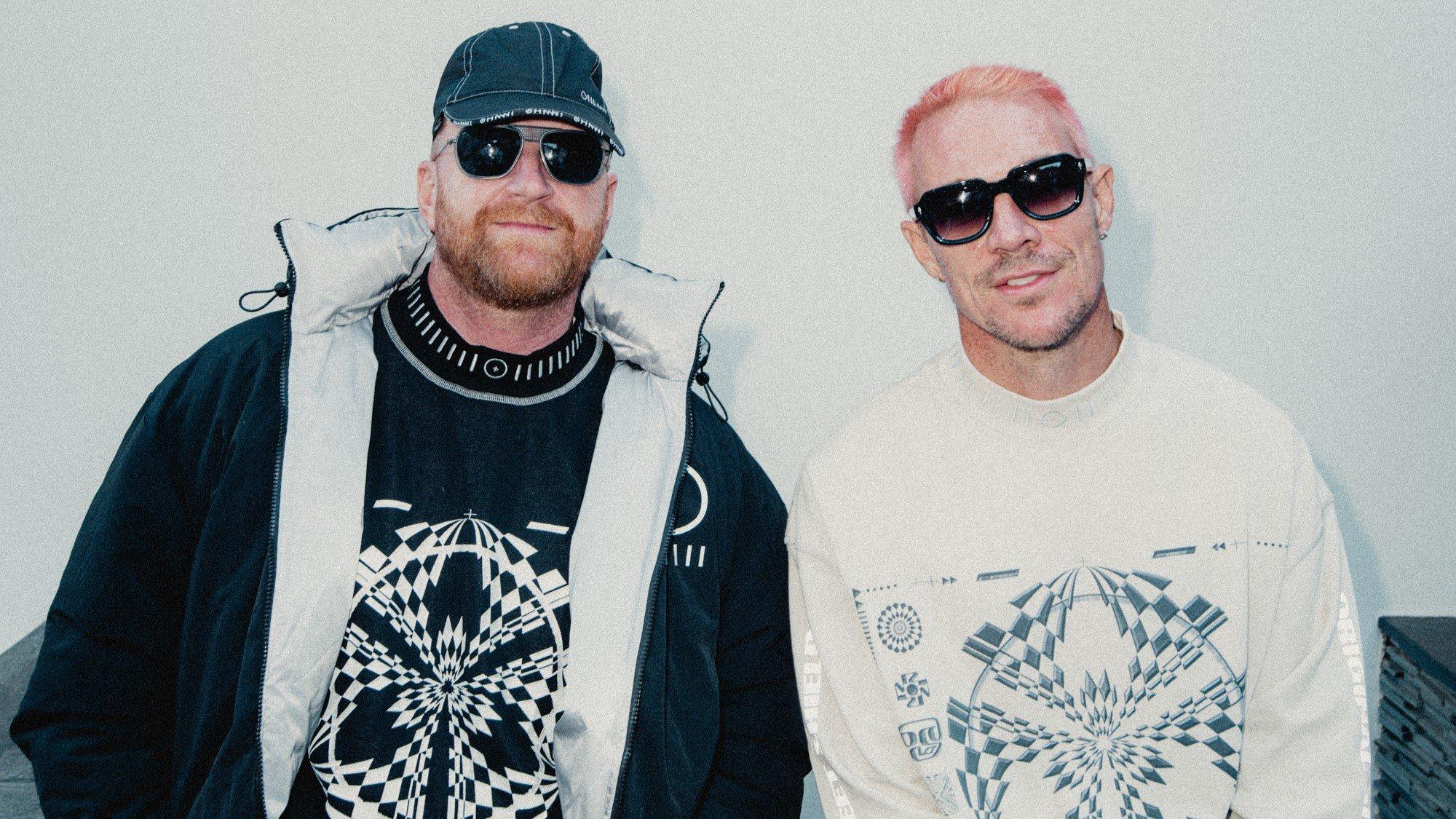
feature
How Major Lazer's 'Guns Don't Kill People…Lazers Do' Brought Dancehall To The Global Dance Floor
"We thought, if we can introduce what was going on in Jamaica to a more American environment, that would be amazing," Switch says of Major Lazer's seminal debut album.
June 12, 2009: a Friday night at popular Kingston nightclub Quad. Minutes after 2 a.m., the evening’s special guests DJs/producers Wesley "Diplo" Pentz and David "Switch" Taylor will take over the club’s DJ booth and premiere their new collaborative project: Major Lazer.
In addition to the club’s usual Friday night clientele, in attendance are dancehall scene makers and music industry personalities who've come to hear Diplo and Switch’s unique selections and the premiere of the sonic-splicing tracks from their first album under the Major Lazer guise: Guns Don’t Kill People…Lazers Do.
Recorded during a three-week period at the Marley family’s Tuff Gong studios in Kingston, Guns was released on June 16, 2009. The album juggles various sounds into a groundbreaking, genre-blurring collage of samples, audio effects and disparate influences with a significant dose of dancehall reggae’s syncopation, and a primarily Jamaican cast of vocalists.
On the album’s cover art by Ferry Gouw, (reminiscent of the vibrant Jamaican dancehall and dub album cover illustrations of the 1980s) Major Lazer is depicted as a brawny cartoon superhero, "a Jamaican commando who fights the spoils of vampires, zombies, pimps, mummies, and other unsavory forces of evil," according to the album’s press release. Aurally, however, Major Lazer’s ultimate mission was to expand the parameters of electronic dance music and present another avenue of exposure for dancehall reggae and other Caribbean rhythms.
"The intention was to translate how inspired we were by the scene in Jamaica because we drew from a lot of the sounds there," Switch tells GRAMMY.com via Zoom.
The innovative fusion of various electronic music pulses with the island’s reggae and dancehall riddims, as well as the incorporation of dub, took Guns Don’t Kill People…Lazers Do to No. 7 on Billboard’s Top Electronic Albums and No. 5 on the U.S. Top Heatseekers charts. Diplo and Switch further popularized Major Lazer with frenetic performances at raves and dance music festivals around the world.
Guns Don’t Kill People…Lazers Do turned 15 this year. In celebration, Diplo and Switch recently released a deluxe digital reissue of the album, which includes three additional tracks: "Pon De Streets," an alternate version of the original’s album’s hit single "Pon De Floor"; "Nobody Move," with new vocals by Vybz Kartel adapted to a beat created during the album’s initial recording session (found on a hard drive that was locked away in a vault for years); and "Where’s The Daddy," featuring M.I.A., who Diplo once called "the third Daddy of Major Lazer."
M.I.A. originally recorded her "Where’s The Daddy" vocals when she was pregnant (she gave birth to her son in February 2009); as an acknowledgement of that time, she cradles a baby bump throughout the song’s 2024 video.
Diplo, an American, and the British Switch were both immersed in house and other forms of electronic music prior to creating Major Lazer. They merged their cutting-edge, genre-defying approaches on their co-production of M.I.A's chart-topping "Paper Planes"; the song was nominated for Record Of The Year at the 51st GRAMMY Awards.
Diplo and Switch made several beats for M.I.A. that were never used, and decided to record them in Jamaica where, as Diplo noted on X, "the artists were extremely talented, the Jamaican music scene at the time was cutting edge and it was cheap to work there." Those surplus beats coupled with the pair’s ongoing fascination with Jamaica’s dancehall culture led to the creation of Major Lazer.
"It was incredible going to the parties there, whether on the streets or in the clubs, and seeing the interaction between the crowds, the selectors and the deejays," Switch explains. "We were cutting our teeth as DJs and producers and wanted to do something different; we thought, if we can introduce what was going on in Jamaica to a more American environment, that would be amazing, so that’s what we set out to do."
Despite their respective accomplishments as DJs/producers, Diplo and Switch were largely unknown to the Quad’s Friday night patrons at the time of Major Lazer’s debut. They worked hard to win the crowd over with a set that alternated between pounding techno beats, customized dancehall selections, an array of audio effects and a computerized voice that sporadically intoned "Major Lazer." Despite their best efforts, the clubgoers remained indifferent until an appearance by a comical African character calling himself Prince Zimboo (featured on the album’s track "Baby," which incorporates an auto-tuned cry of an infant that’s sampled on elsewhere on the record) thawed the audience’s initially icy response.
Via email, Diplo recalls Major Lazer’s Jamaica debut with brutal candor: "We sucked…basically got booed but Prince Zimboo told a bunch of good jokes and people were happy to have some funny-ass crackers in the club."
Switch, who reflects on that night with greater fondness, remembers feeling "confident that we could play music that no one else had, but could we step into that scene that had inspired us?"
While Switch recalls being nervous about not having a vocalist toasting live on the riddims or hyping up the crowd, he revealed, "more preparation went into that set than either of us has pulled off together or individually. Diplo and I made our own dubs. We took acapella dancehall vocals and put them on our beats, put new vocals on already established dancehall beats and juggled a lot of sounds."
Guns Don’t Kill People…Lazers Do, released four days after their Quad gig, kicks off with "Hold The Line," a crackling spaghetti Western meets surf rock soundscape. An immediate indication of Major Lazer’s preparation and myriad influences, the tune is punctuated by the mantra-like, hi-pitched vocals of barrier-breaking singer Santigold, sharp patois verses from Jamaica’s Mr. Lexx, neighing horses and ringing phones, an eclectic combination designed to make the listener "vibrate like a Nokia."
What follows is the intergalactic throb of "When You Hear the Bassline" (featuring Jamaica’s Miss Thing), the near-psychedelic, cavernous dub resonance of "Lazer Theme" (Jamaica’s Future Trouble), and appealing pop-soca flavored dancehall on "Keep It Goin’ Louder." Artists from the diaspora abound: Queens’ Nina Sky and Brooklyn-based Jamaican Ricky Blaze appear on "Keep It, Goin’ Louder" while Guyana born, Brooklyn raised singer Jahdan Blakkamoore’s exquisite vocals swirl amidst the delay and reverb on the dub-drenched Rasta empowerment anthem "Cash Flow."
"We just wanted to add to the lexicon of dancehall," Diplo writes of the album. "We never tried to elevate or move the sound forward…we just wanted to make something weird."
Out of the weirdness came a significant hit — and the album’s most-streamed track — "Pon De Floor." Created with additional production by Dutch DJ Afrojack, "Pon De Floor" is dominated by a sputtering synth over a marching band snare drum pattern; dancehall’s "Worl’ Boss," Kartel rhymes "baby, get in line, let me see your bestest wine."
"Jamaican DJ crew Chromatic made 'Pon De Floor' a hit in Kingston and it grew from there to the rest of the world," Diplo notes. The track reached the UK Singles Chart, was featured on the "DJ Hero 2" video game, and then attained widespread attention when sampled on Beyoncé’s 2011 hit "Run the World (Girls)."
The song’s stylized video, (think "Pee-wee’s Playhouse" meets Kingston’s now defunct Passa Passa street dance) was directed by comedian Eric Wareheim. The video stars Skerritt Bwoy, Major Lazer’s former hype man, who introduced many viewers to the hypersexualized dancehall "dance" ritual known as daggering.
"'Pon De Floor' was unlike anything that was going on in Jamaica at the time, but it was inspired by the energy of the clubs there," Switch remarks. "I remember going to Hellshire Beach and the DJ at an event there pulled the record up three or four times. Watching the crowd’s reaction, it was like we were vindicated, the song penetrated the real Jamaica scene, people are ok with us; that was a real thrill."
Yet, some weren’t ok with Major Lazer, two white foreigners spearheading a Black Jamaica-rooted album. Protests of cultural appropriation were cited in some reviews, without considering the credentials of the Caribbean artists involved and the benefits many of them derived from it.
"Major Lazer did wonders for me," Vybz Kartel tells GRAMMY.com. "They helped to push me to an audience that normally wouldn’t know Vybz Kartel; with 'Pon de Floor' they could put a name and a face to the song, which definitely gave me a lot of new fans, so big up Major Lazer, every time."
"It was incorrect to think we were doing anything like cultural appropriation, it was journalistic," adds Switch. "We found something that we thought would be appealing and wanted to champion it, expose it. We ended up with Vybz Kartel being on a Beyoncé record, the two farthest apart worlds colliding, and we’re very grateful that we got to bridge that gap."
As Major Lazer’s popularity escalated, Switch decided to leave in 2011, preferring to remain behind the scenes, producing and developing his songwriting skills. "At that time [Diplo] was very focused on the opposite, he was taking the DJ world by storm and it felt like he was fine doing it on his own, collaborating with the people he went on to collaborate with," acknowledges Switch. "But we never really stopped working on stuff together."
In a recent video, Diplo said he considers Guns Don’t Kill People…Lazer’s Do to be "a little bit of punk, a little bit of dancehall, a little bit of pop songwriting" made "really, really fun." "We had nothing to prove, we just decided to put out something that was crazy. I think the album really hit with people because they loved the roughness of it. It had no rules and I think it was very important to break the stereotypes."
Guns Don’t Kill People…Lazer’s Do reminds music fans that dub — created through the innovations of King Tubby and Lee "Scratch" Perry — established the template for remixes by demonstrating the infinite possibilities for deconstructing a recorded work. It also served as a reminder that dancehall reggae, which utilized digitized instrumentation beginning in the mid-1980s, are not only forms of dance music, but have played significant roles in its evolution. Switch adds that the album brought greater attention to dancehall/reggae at a time when international interest in the music had waned.
"I think the album really opened the door for dancehall, not just in dance music but pop music as well. If you listen to what Benny Blanco does with Ed Sheeran, that’s about as mainstream as it gets."
There’s a subtle Jamaican deejay cadence in Sheeran’s vocals on "Don’t" and a lilting, off-beat reggae guitar strum on "Take It Back," produced, respectively, by Blanco and Rick Rubin, for Sheeran’s 2014 album x (Multiply). Sheeran’s 2017 album ÷ (Divide) includes the dancehall inflected hit "Shape of You," which topped Billboard’s 2017 year-end singles chart).
"I’m not saying that wouldn’t have happened without Major Lazer," Switch continues, "but I feel like we oiled the cogs and pointed out a different kind of rhythm that had greater commercial prospects in the pop world, coming from the dancehall scene in Kingston."
More Dance & Electronic Music News
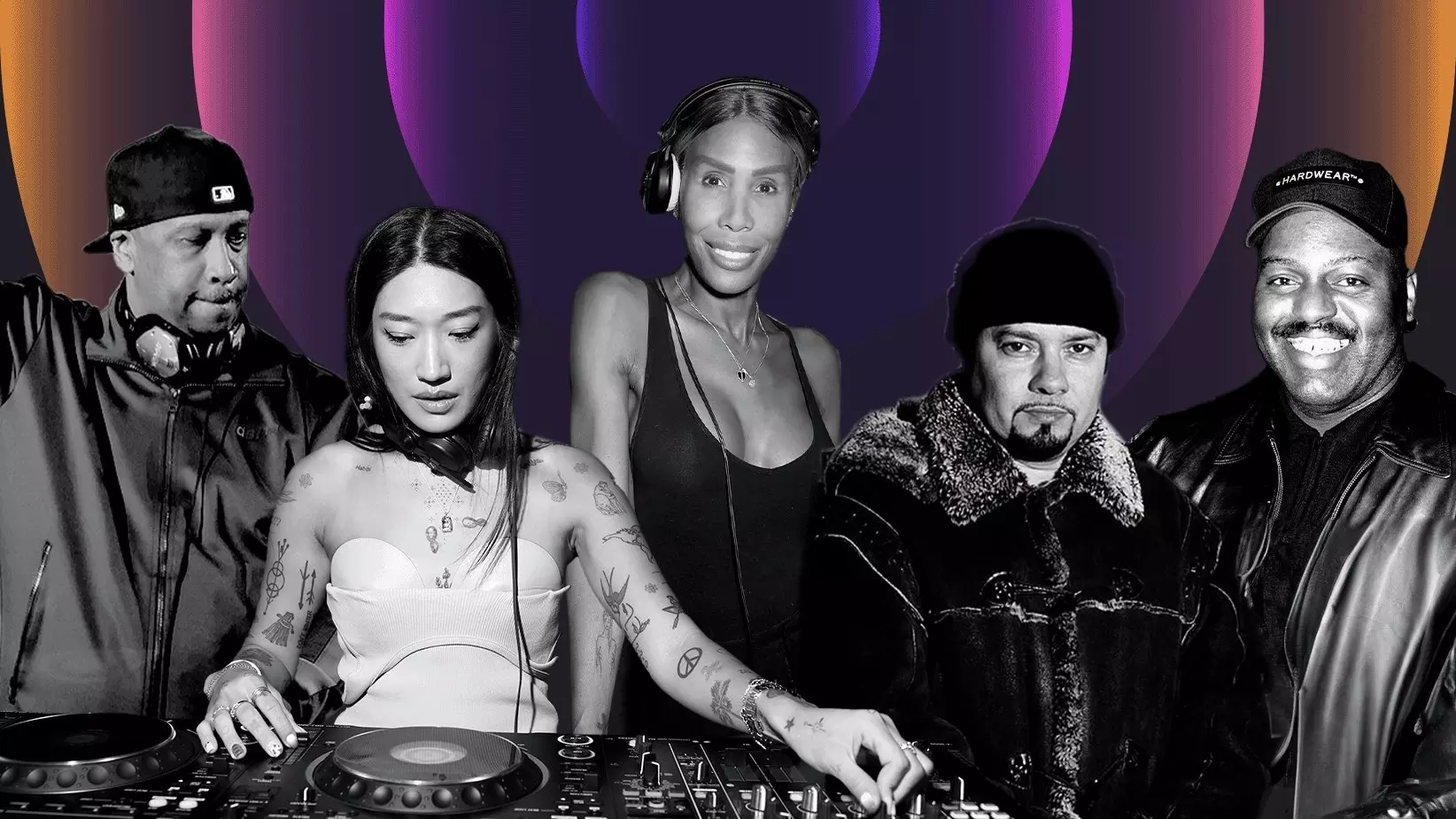
A Timeline Of House Music: Key Moments, Artists & Tracks That Shaped The Foundational Dance Music Genre
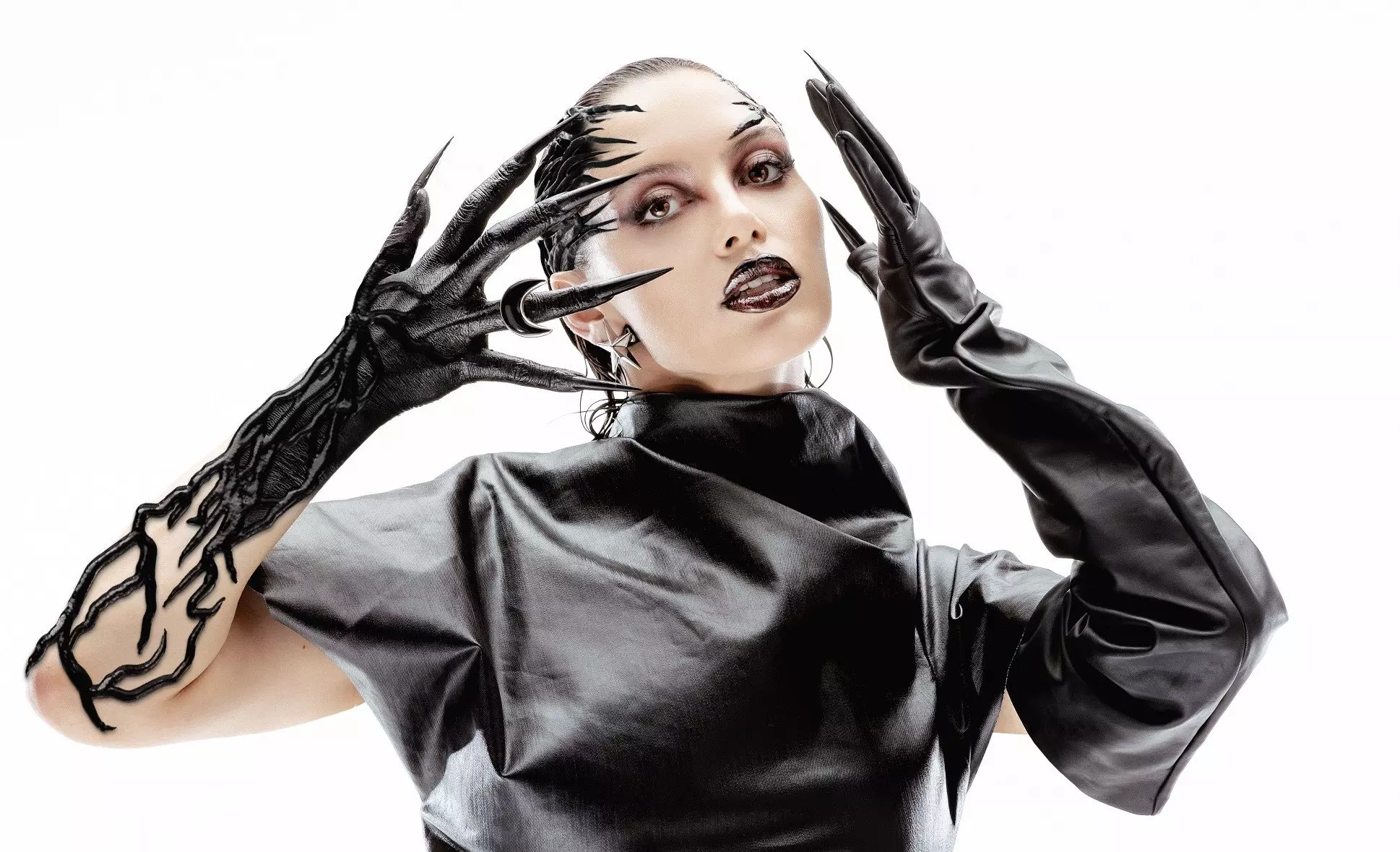
Hard Techno Maven Sara Landry Talks 'Spiritual Driveby,' Creating A Safe Space For Emotion & Leaving It All On The Dance Floor

Zedd's Road To 'Telos': How Creating For Himself & Disregarding Commercial Appeal Led To An Evolutionary New Album
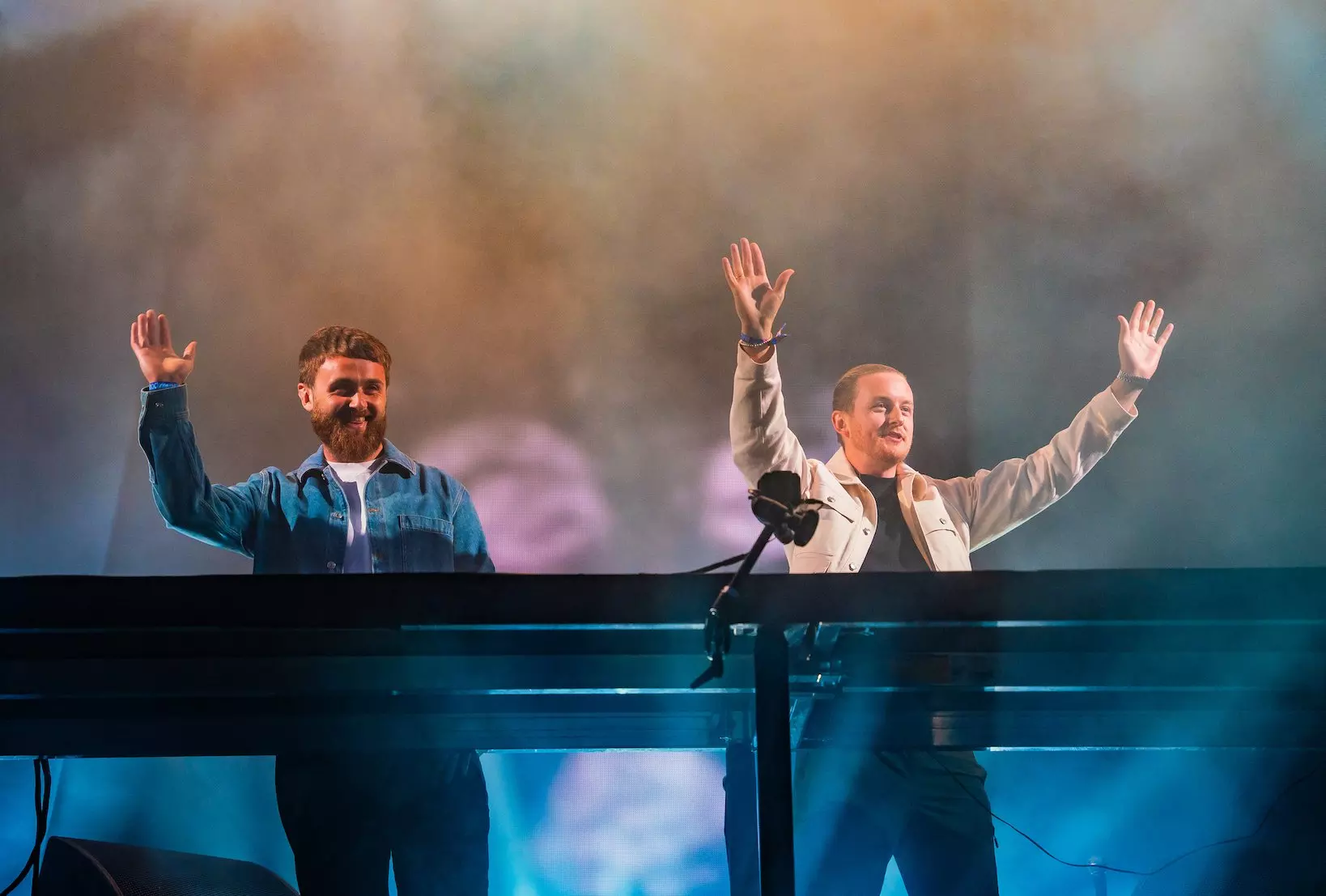
10 Cant-Miss Sets At HARD Summer 2024: Disclosure, Boys Noize, INVT & More
.webp)
Machinedrum's New Album '3FOR82' Taps Into The Spirit Of His Younger Years
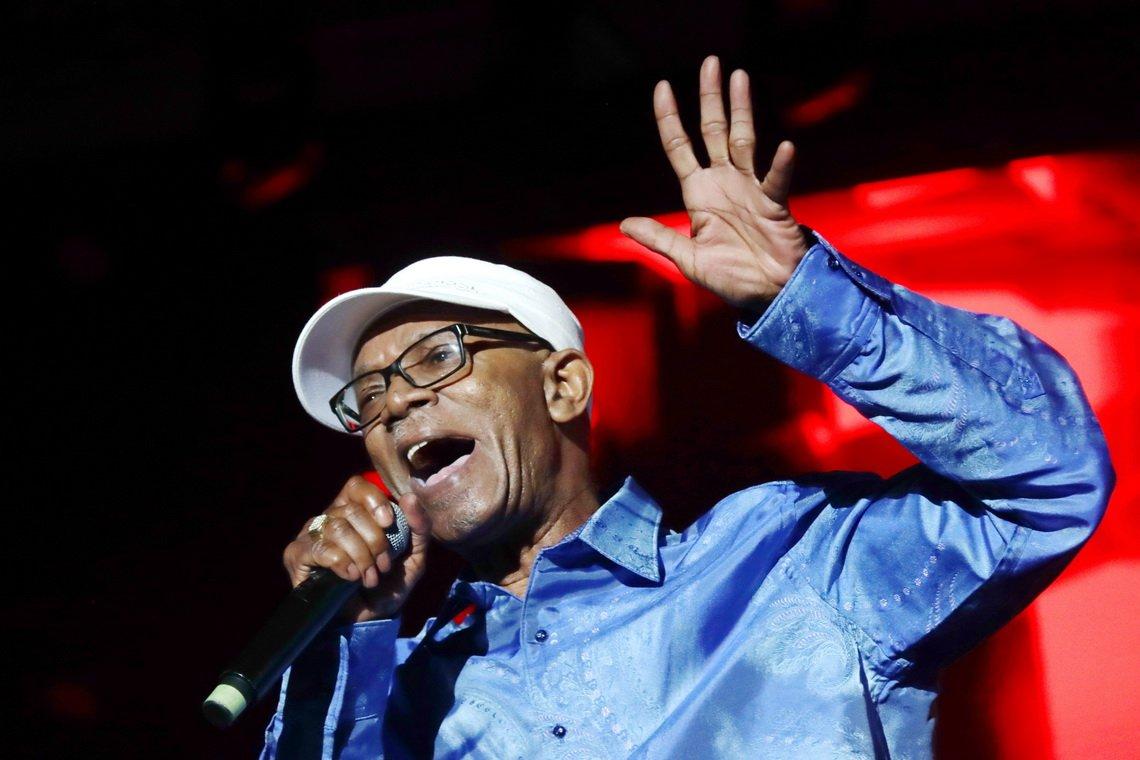
Photo: Steve James
interview
Living Legends: Beres Hammond On His Enduring Career, Timeless Music & 'Brand, Jamaica!'
Beres Hammond has had a lengthy career in reggae, both as a member of Zap Pow and as a solo artist. The two-time GRAMMY nominee discussed his enduring popularity and what he hopes younger artists can learn from his story.
Prior to performing his first song at Reggae Sumfest 2024, Jamaica’s largest music festival, legendary vocalist Beres Hammond shared a concise but important message. "Jamaica," he bellowed, seemingly as a greeting, which he followed by shouting "brand." "We are a brand! I am, you are. Brand! Say it," he instructed. "Brand, Jamaica!"
Throughout his July 20 Sumfest set, Beres interspersed the catchphrase "brand, Jamaica," as if reminding the audience of 15,000 (and the younger artists backstage) at Montego Bay’s Catherine Hall, of Jamaican music’s significant legacy and widespread impact. Countless musical gems comprise brand Jamaica, but few, if any, are more precious than the songs of Beres Hammond.
Born Hugh Beresford Hammond in the small fishing village of Annotto Bay, the two-time GRAMMY nominee first gained notoriety in the early 1970s fronting reggae/R&B fusion outfit Zap Pow. As a solo artist, Beres’ songs primarily explore the erratic complexities of romantic relationships; his charismatic, powerfully granular vocals have been likened to that of soul legends Otis Redding, Teddy Pendergrass and Sam Cooke.
"I never thought I’d reach this point," Hammond tells GRAMMY.com. "Even now, I still show respect to the folks that helped me to grow and are helping me to still be relevant."
At Sumfest, accompanied by his superb Harmony House band and three flawless female backup singers, Beres delved into his beloved catalog, as the audience, spanning three generations of fans, loudly sang along. After performing his first No. 1 single, the 1976 soul nugget "One Step Ahead," which held the top spot in Jamaica for over three months, Beres reminisced onstage, "People thought I was an American guy. It was my first taste of success, but I had no money, I couldn’t even ride the bus. I was broke!"
Beres released a spate of popular singles beginning in the late 1970s into the mid-1980s yet he continued to struggle financially. His situation improved with his initial release on his own Harmony House label, the 1985 hit "Groovy Little Thing."
A sequence of hits followed recorded for various Jamaican producers including 1987’s "What One Dance Can Do," which spawned several answer records (including Hammond's own "She Loves Me Now"). His 1990 defiant social critique, "Putting Up Resistance", produced by Tappa Zukie, remains one of the biggest reggae songs from that era.
Working with producer Donovan Germain’s Penthouse Records, in 1990 Beres laid his vocals over a riddim called "A Love I Can Feel" (after singer John Holt’s 1970 hit, itself a Temptations cover). The resultant "Tempted to Touch" topped reggae charts internationally and commenced a stream of Penthouse hits for Beres that also included "A Little More Time" and "Who Say," collaborations with a gruff-voiced teenaged sensation, Buju Banton.
As his fan base expanded throughout the Caribbean and reggae Diaspora, alongside increasing acclaim for his stellar songwriting and passionate, pliant vocals, it was inevitable Beres would attract major label interest. He signed to Elektra Records, for whom he released just one album, the outstanding In Control, in 1994, featuring the sublime, sultry R&B flavored single "No Disturb Sign."
Between 1996 and 2018 Beres released seven self-produced studio albums through his Harmony House label’s joint venture with Queens, NY based VP Records, including two GRAMMY nominated titles in the Best Reggae Album category. Beres received the nod for his 2001 album, Music is Life at the 44th GRAMMY Awards and again at the 56th GRAMMY Awards for his 2012 album One Love, One Life.
Beres has collaborated with dancehall superstars Sean Paul and Popcaan, and his work has been referenced by Jamaican artists including singer/songwriter Tanya Stephens and sing-jay Mavado. Although he hasn't had a U.S. mainstream hit, Hammond's music is nonetheless recognized by some of the industry’s biggest names. In 2012 Rihanna tweeted the lyrics to Beres’ "They Gonna Talk," obliquely addressing her then rekindled relationship with Chris Brown; at an event in Barbados, she was seen singing along to a medley of Beres hits. Drake conveyed his fondness for the iconic vocalist by retweeting a fan’s declaration that she’d like Beres Hammond to sing at her wedding. Wyclef Jean conclusively expressed the veneration due the bespectacled songster on the outro to his 2001 duet with Hammond "Dance 4 Me," bluntly stating, "All you fake singers, bow down to the legend."
Beres Hammond's most recent single "Let Me Help You" was released on May 3; VP Records says a new Beres project is possibly due by the end of 2024. In between rehearsals for a spate of performances in the New York tri-state area, Beres Hammond sat down with GRAMMY.com and discussed his enduring popularity, his messages to younger artists and the meaning of "brand, Jamaica."
Welcome back to New York City. I was at Reggae Sumfest and I saw your wonderful performance. There’s something extra special about your performances in Jamaica, seeing, hearing different generations of fans singing along to your songs.
What I like most is when the young folks, teens and 20s say, "My mom used to listen to you when she’s in the kitchen working, that’s how I know these songs." They still love them, still sing them. It makes me feel like I came out here to do a job and everything’s been accomplished.
Why do you think your music has such vast appeal among various age groups?
I think it’s the way I present my songs. I make it so easy for everyone to have access. I don’t use Wall Street words; I make it A-B-C. I just do my thing in the simplest manner so everybody can sing it!
You just performed two sold out shows at the Coney Island Amphitheater and the New Jersey Performing Arts Center part of your Forever Giving Thanks tour. So many decades after you started out, that must feel extremely gratifying.
Everyday feels like a new day on the job. I’m giving thanks that I’m in good health and I’ve still got some voice left. All the folks around me, like the band and crew, they’re treating me as if we just started. When you have people around you like that, it’s almost like the journey has just begun.
Have you been working with the same band members for all these years?
For a lifetime, almost. Some have been with me for over 30 years. For the newest members, it might be 10 years.
Throughout your Sumfest performance you intermittently shouted, "brand, Jamaica!" What does that mean?
I was talking about me, what a beautiful brand, but also Jamaica, itself, to the world. Helluva brand! I join the folks that still have Jamaica on the world map as a brand to be reckoned with. Because we nah go nowhere. We deh yah! [We’re here].
I’ve always thought of myself as a brand and upcoming artists should recognize the legacy that’s left here for them. I say "brand" again, to make them understand the role they’re supposed to be playing in what was handed down to them. Be proud of what you’ve got because you are standing on some broad shoulders; be careful how you step on those shoulders.
Coming up in the 1970s and early '80s, whose shoulders did you stand on?
What introduced me to wanting to sing was a few voices including Otis Redding, Sam Cooke, Stevie Wonder, he’s still amazing. I used to love Aretha Franklin and I still love Patti LaBelle. I listened to those voices and said, "Yeah, I would love to sing like them." Then checking on my Jamaican folk, Alton Ellis, Delroy Wilson, hearing those voices, I thought, there must be something out there for me.
Learn more: Remembering Coxsone Dodd: 10 Essential Productions From The Architect Of Jamaican Music
Are there any artists you are mentoring, artists that are standing on your shoulders?
Some of them come up to me and say Father B — they call me all kinda names, Father B, Dada, and they give me some nice accolades. I don’t seek them out, they find me and I always have the right things to say to them, if they ask. Kids still want to learn and being around me, you will learn many things.
Thirty years ago, in 1994, you released your album 'In Control' for Elektra Records. It's still one of my favorite albums.
At that time Elektra went into some merger. The beautiful Elektra crew working with me — some got fired, some went to other places; it was a mess, man. That had a great effect on what the album should have done and really turned me off from Elektra and major labels. This is how people with their big bag of money treat people, come in, push us around. But through the years, I’ve learned that [Elektra] took my music to places that I don’t think I would have reached, so it helped me along.
You continue to have a very successful career, but I can’t help but wonder, had 'In Control' received the push it should have, would your music be better known beyond a reggae audience?
I don’t know, but I know where I stand now and where we are still aiming to go. That never came out of our focus because, hey, the sky’s the limit.
Where are you aiming to go, what are some of the things that you’d still like to do?
I’d like to sing that song that makes the whole world sing along. I’m not sure if I’ve made that one yet.
I hope that my Jamaican brothers and sisters who are making music take it seriously and remember, you’re an influence. Ask yourself, what kind of influence do you want to be to the next generation? Do you want to be the one to make them have a better education? Do you want to be the one that makes them aspire to be leaders? Or do you want to be the one to send them to prison?
Is there any place that you haven’t yet performed but would like to?
People have asked me, what’s my favorite place to perform? I still don’t know. My favorite place is anywhere in the world; once you gather to see me, oh God, that’s my favorite place.
How has the music industry changed in the years that you’ve been in it?
You have to brace to face any new challenge in music. But all I’ve ever wished for is, no matter what kind of changes the music goes through, keep the thing positive so the people can learn. I can’t tell the younger generation what to do. I had my time and did what I had to do; you have to allow them to be themselves, too. Whatever changes the new generation wants to make, I’m there with them; just keep those values and you’re good.
On Jan. 1, 2023, you and Buju Banton put on a very successful concert in Jamaica called Intimate. Any chance you’ll bring that back?
They just talked to me yesterday about it. [Hammond imitates Buju’s resounding voice] "What ‘appen? What are we saying? Second leg? Father B, give I the green light." So, we are looking forward to bringing that back in January 2025.
Read more: Buju Banton's Untold Stories: The Dancehall Legend Shares Tales Behind 10 Of His Biggest Songs
You’ve recorded many songs with Buju and in 2023 you released another collaborative single "We Need Your Love"; an album was expected to follow. Are there any release plans for the Beres/Buju album?
We’ve already recorded 12-15 songs so when them ready, they will tell me. I did songs for Buju and he did songs for me.
Earlier, you mentioned turning on the radio to hear a song that everyone will sing along to; do you listen to Jamaica’s radio stations to hear the latest music?
I listen to talk shows to tap into what the country is doing. You have people calling in, talking about what the prime minister is doing, how many people died today. Music is around me through my kids, my friends. I’m up on everything; without actually listening to it, I’m hearing it.
You have six children; some are pursuing music careers. Tell me about them.
One of them, DJ Inferno, he’s always on the road with me; he plays before I perform, and he mashes up the place all the while. My son Rasheed is in production, trying to establish his own label, he’s ready to start releasing music. One of my daughters, Nastassja, they call her Wizard, she’s a writer, artist, producer. My other daughter, Andrene, is an actress (Andrene Ward-Hammond stars on the CW Network’s "61st Street") and she’s on tour with me looking after my personal needs.
Sometimes I am out here with all six of my children. It’s a beautiful thing. They make me proud.
More Reggae News
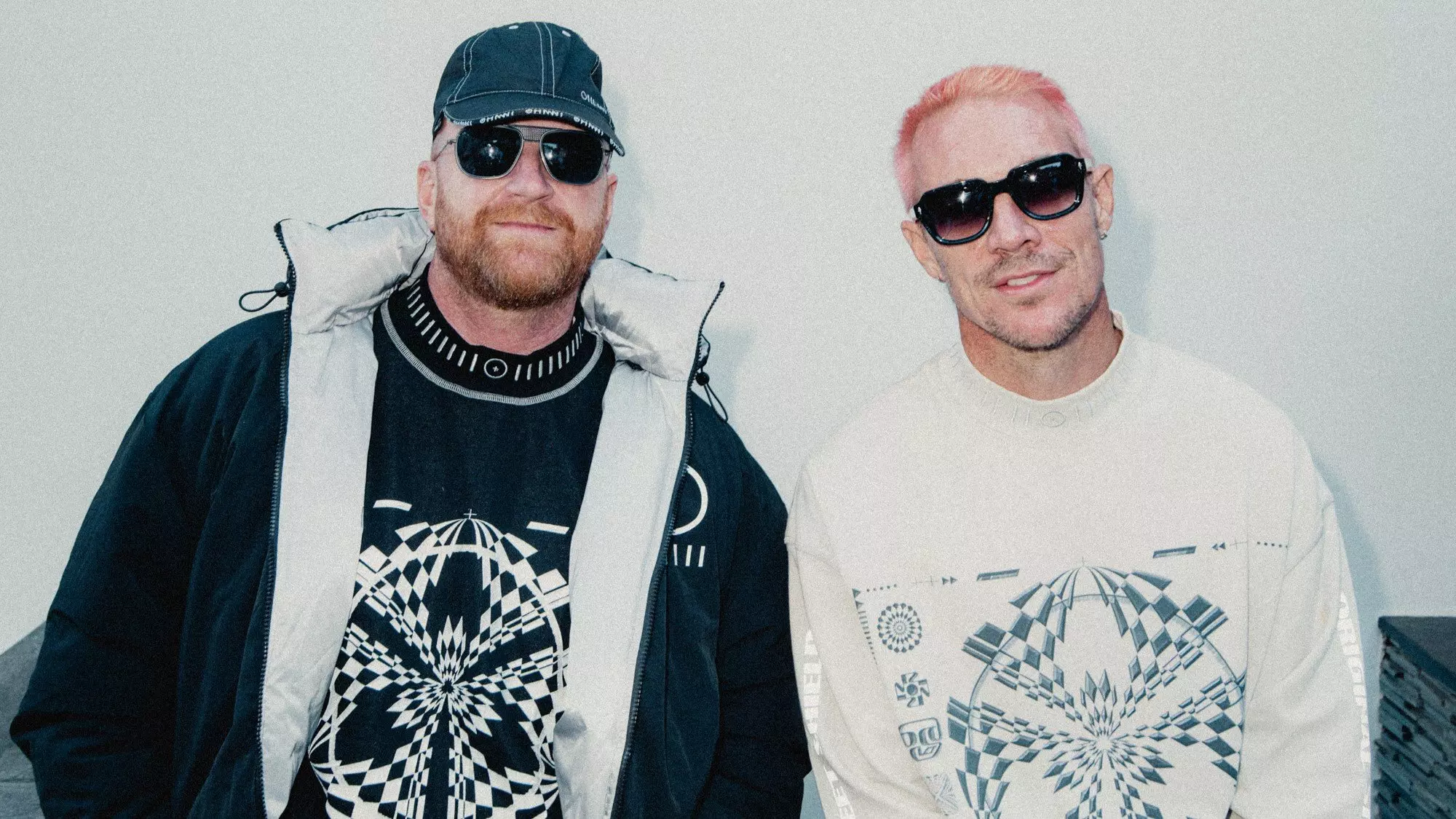
How Major Lazer's 'Guns Don't Kill People…Lazers Do' Brought Dancehall To The Global Dance Floor
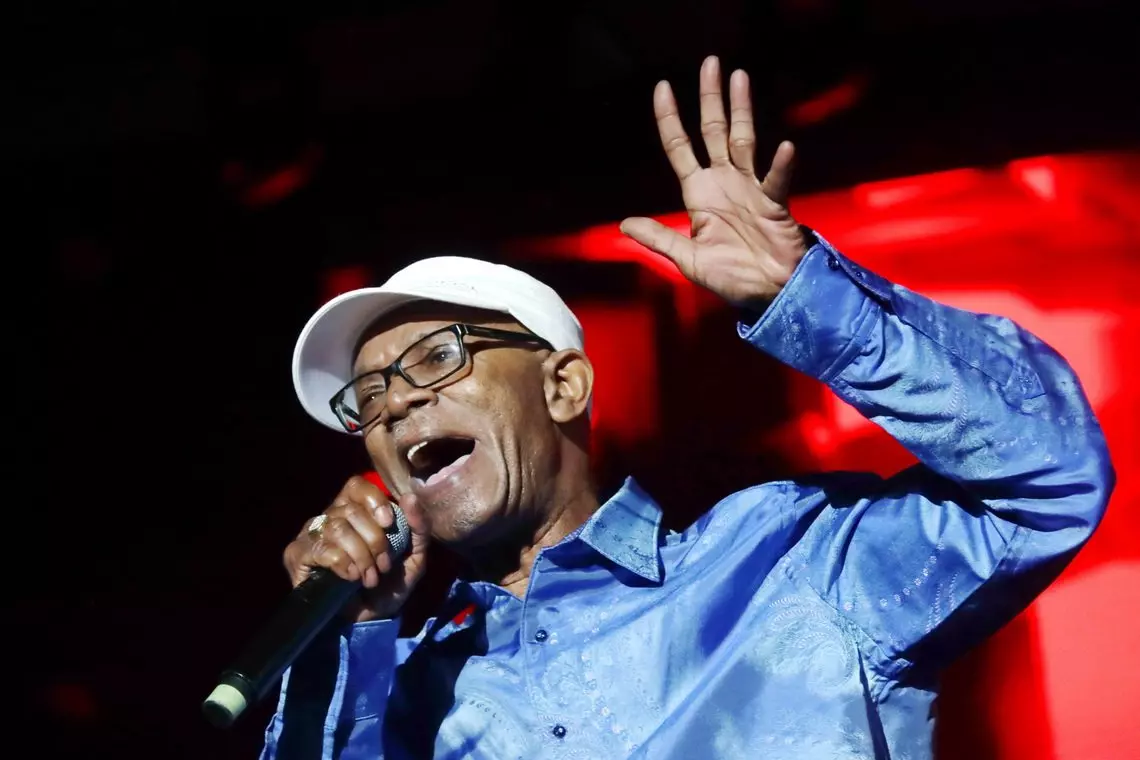
Living Legends: Beres Hammond On His Enduring Career, Timeless Music & 'Brand, Jamaica!'
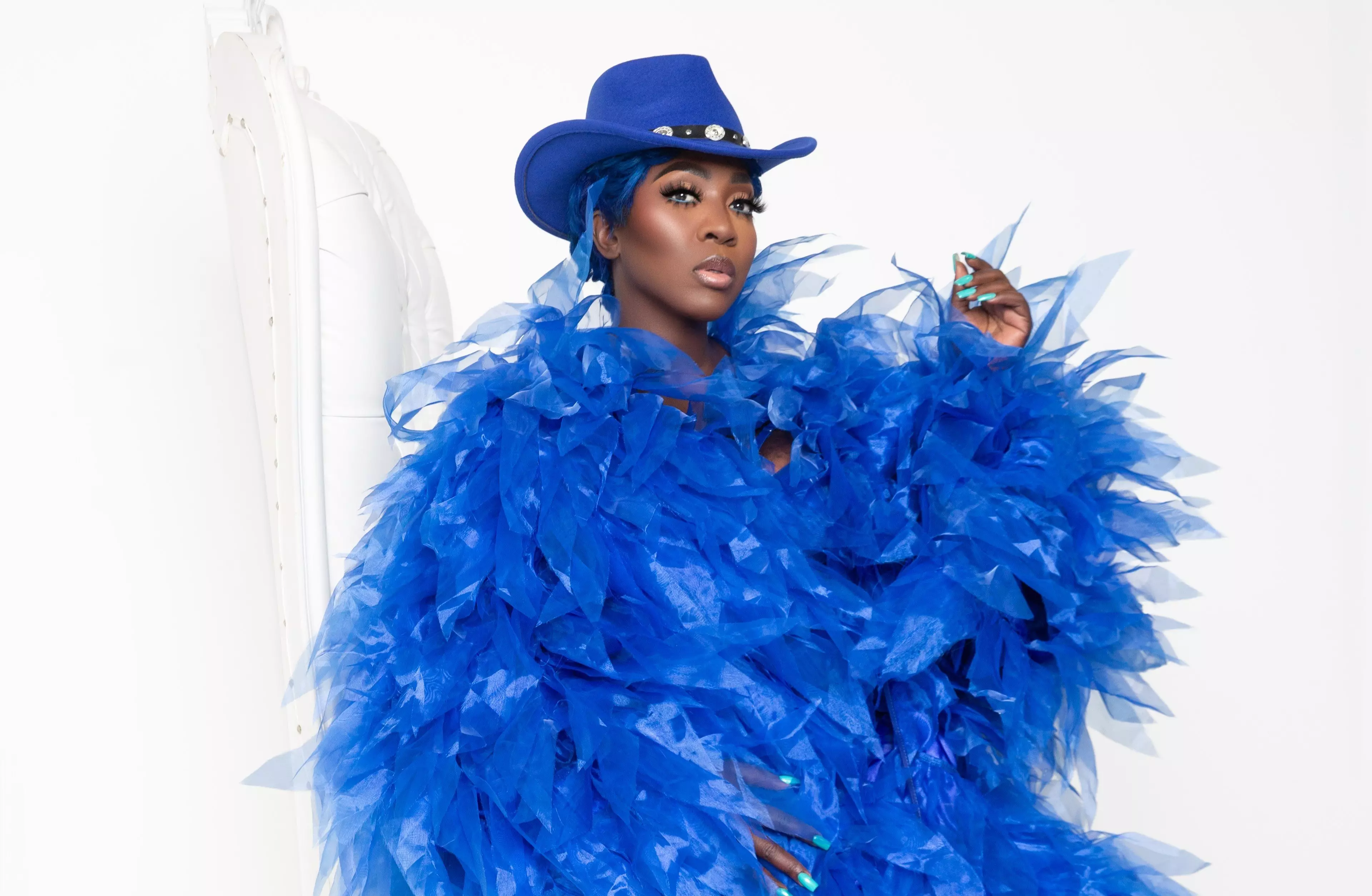
Dancehall Legend Spice Reflects On 'Mirror 25,' Her Near-Death Experience & Owning Her Own Vision
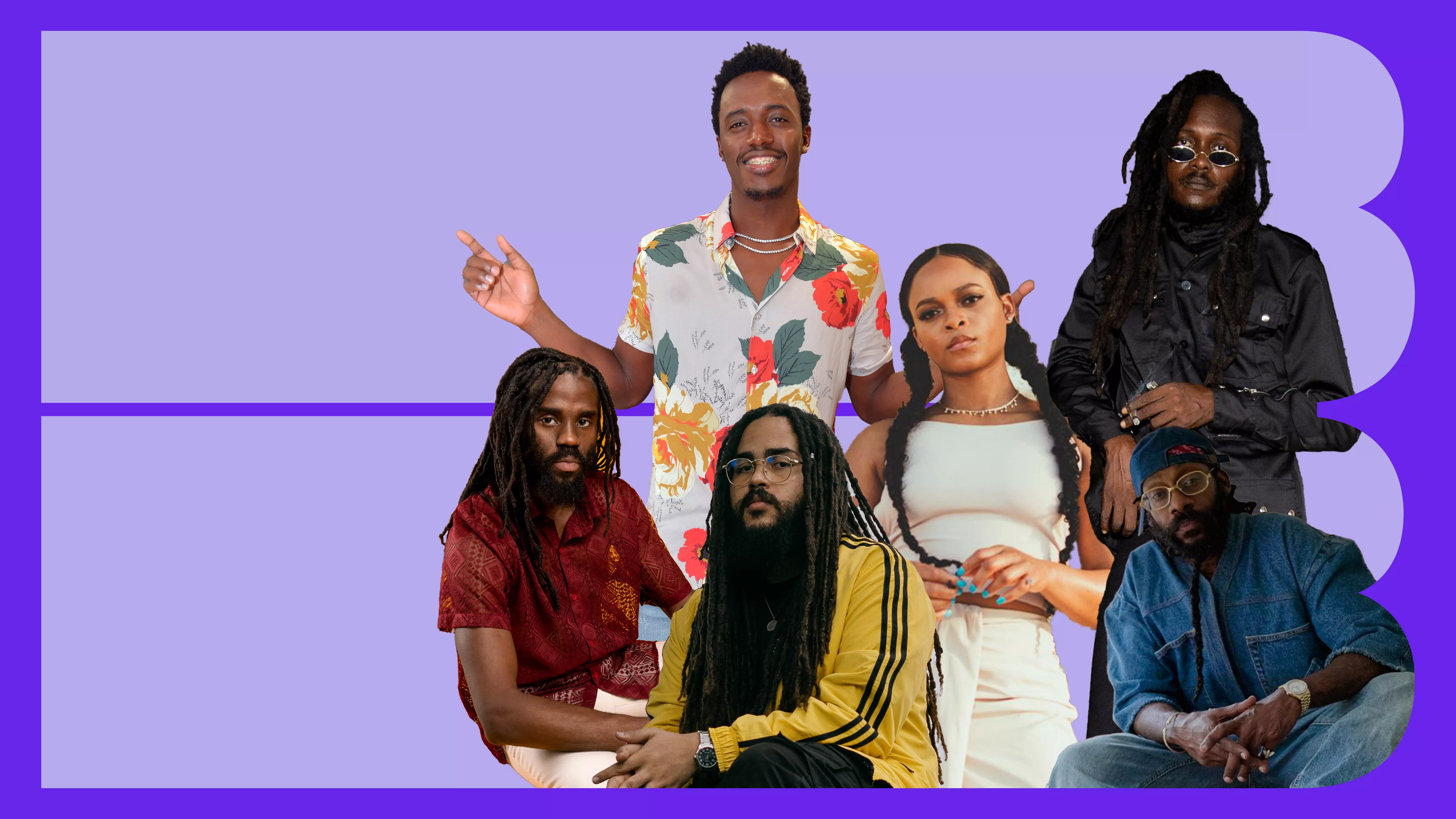
10 Artists Shaping Contemporary Reggae: Samory I, Lila Iké, Iotosh & Others
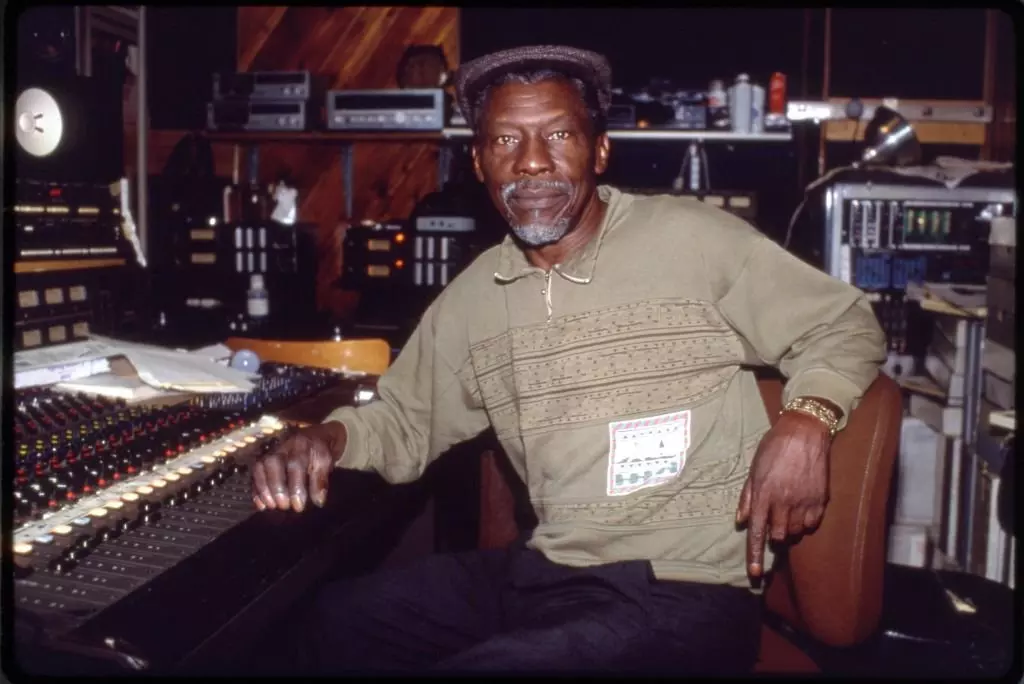
Remembering Coxsone Dodd: 10 Essential Productions From The Architect Of Jamaican Music
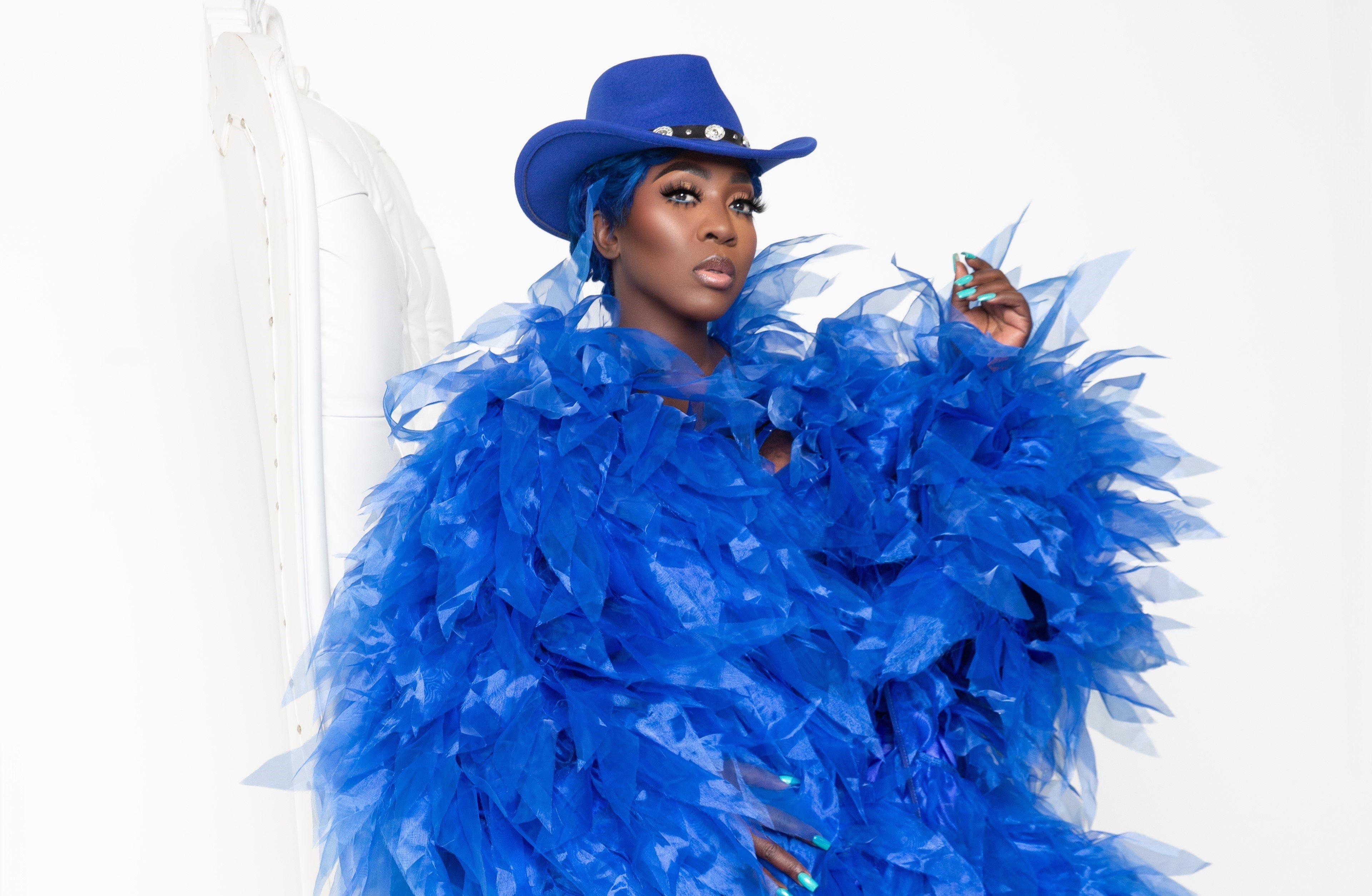
Photo: Mackinley Madhere/Spex Photography
interview
Dancehall Legend Spice Reflects On 'Mirror 25,' Her Near-Death Experience & Owning Her Own Vision
"I’m always going to authentically represent dancehall culture," Spice says of creating her new album, 'Mirror 25.' Beyond her trademark sound, Spice's latest includes forays into Afrobeats, soca, R&B, and country.
GRAMMY-nominated singer Spice has ascended the throne, to be crowned the queen of dancehall reggae for this generation. However, she could also be called dancehall’s first lady due to her unprecedented accomplishments over the course of her 25-year career.
Known for her numerous risqué hit singles, creative videos, bawdy stage shows, social media savvy and bold fashion sense, Spice became the first hardcore female dancehall artist to receive a GRAMMY nomination in the Best Reggae Album category. At the 64th GRAMMY Awards, she received the nod for 10, her 2021 debut album, which includes the hit "Go Down Deh" featuring Shaggy and Sean Paul. Spice is also the first Jamaican artist to be a featured character on an American TV series (VH1’s "Love and Hip Hop Atlanta") and the first Jamaican female dancehall artist to reach 1 billion collective views on YouTube.
Spice is the Founder/CEO of Spice Official Entertainment, through which she will release her third studio album, Mirror 25, on Aug. 9. In another first for a Jamaican artist, she unveiled the album cover on "GMA3."
The album’s 25 tracks include forays into Afrobeats, soca, R&B, country and, of course, hardcore dancehall. On the album’s first single, "2085 Tea," Spice ingeniously adopts the persona of a gossip-mongering granny who’s spilling the "tea" on herself. "I’ve gone through trauma, heartache, pain, betrayal, so I didn’t want this gossip to be about other people’s lives," Spice tells GRAMMY.com of the song. "I wanted it to be about my experiences."
Born Grace Hamilton in Spanish Town, Jamaica, Spice came from very humble beginnings. She grew up singing in the church and developed a love of performing while still in school.
In 2000 Spice made her first appearance on a major Jamaican stage show, Sting, when Ninja Man, one of the greatest, most feared opponents in verbal clashes, spotted Spice’s talent. When Spice was handed the mic, she did not disappoint. A few years later, dancehall star Baby Cham introduced Spice to his mentor, maverick producer Dave Kelly, for whom she recorded her first hit single, 2005’s "Fight Over Man."
In 2009, Spice’s career accelerated with her feature on Vybz Kartel’s "Ramping Shop." With its catchy refrain, raunchy patois lyrics, and the undeniable chemistry between Spice and Kartel, "Ramping Shop" became one of the biggest and most controversial dancehall hits. Jamaica’s Broadcasting Commission issued a directive to halt its play on the island’s airwaves but the ban only increased its popularity; "Ramping Shop" spent 15 weeks on Billboard’s Hot R&B/Hip Hop Songs chart.
Since then, Spice’s has released numerous explicit singles accompanied by imaginative videos including "Sheet," "Needle Eye" and "So Mi Like it" — each of which can be viewed as liberated expressions of female sexuality or "slackness" (vulgarity). However, Spice’s music also addresses topical issues such as sexism, on "Think Like A Man", and corrupt policing on "Po-Po" inspired by Black Lives Matter and featuring an impressive verse from Spice’s teenaged son Nicho. Among Spice’s most impactful songs is "Black Hypocrisy," prompted by a derisive social media comment about Spice’s dark complexion.
Spice has survived poverty, homelessness and in 2022, a health scare that almost brought her remarkable journey to a premature end. Ahead of the release of Mirror 25, which she calls "a raw open diary of her triumphs and tribulations" Spice reflected on her life, career, and spilled a little more tea, with GRAMMY.com.
This interview has been edited for clarity.
Congratulations on your 25th anniversary. Does it feel like 25 years have passed since you started?
It feels like it was just yesterday; I can vividly remember each year as I struggled to make it to this point. I remember in 1999, when Bounty Killer handed me the microphone in my community so I could go onstage and showcase my talent; in 2000 when I did my first major performance on Sting in Jamaica and Ninja Man helped me make a name for myself by calling me onstage; when Baby Cham helped me to get my first hit song, "Fight Over Man," by introducing me to Dave Kelly.
But I’m always reminded of my struggle, it has not been an overnight success. I’ve been through a lot to get to this point; to become a GRAMMY nominated queen of dancehall was not a walk in the park.
Tell me about the songs, the topics that you’ve written about on 'Mirror 25'?
As the queen of dancehall, I want to make sure that I represent the genre as authentically as possible, with that hardcore dancehall sound, so the listener will know that’s a girl from Jamaica. On tracks [such as "Gangster" with Chronic Law, featuring Ireland Boss] you can hear the sound system, the bassline, you can almost smell the ackee and saltfish and jerk chicken.
I have a song that could go on the R&B chart. I have a song about what happened in my past relationship ["Ex Boyfriend"], which will be very relatable to women because that song asks, why do men do the things that they do to women? They can’t live without us but treat us in a manner that is degrading sometimes.
There are dancing songs [and] collaborations with Jamaican women; we’re singing about our power as women. My fan base has grown tremendously so there’s an Afrobeats collaboration and we are going into the Indian market. I give all praise to Him after my near-death experience, so there’s a little bit of worship, too.
Towards the end of 2022 we heard rumors that you weren’t well and possibly were in a coma. Please explain what happened.
I was in the Dominican Republic, I had breast augmentation. While I was there my hernia erupted and sent my body into a sepsis shock.
I felt like I died because of what I went through. At one point, I had an out of body experience. I saw pictures of the sepsis that had eaten away at my skin; I shared the pictures with my fans. I was literally laying there with an open stomach, without skin. It was a traumatic experience but through the grace of God, somehow, he brought me back to normal.
Did you fear that you wouldn’t be able to resume your career?
Oh, absolutely. This happened in November 2022 and for the rest of that year, and throughout 2023, I was in and out of the hospital. The sepsis also affected some of my organs. I did surgery to fix another hernia that they caused when they opened my chest up to save my life. By the grace of God, I completed my final surgery, and the hernia was repaired.
Watching you perform on stage now, you twerk, "wine up your waist,"do splits. If we didn’t know what had happened, we would never guess you have been through such an ordeal.
God is good, I give Him all the praise.
The first single from 'Mirror 25,' "2085 Tea" is so cleverly written and delivered as you get your jabs in about certain people including your children’s father, "Love and Hip-Hop Atlanta" castmates and your back up dancer who allegedly had an affair with your now ex-boyfriend. How did the song come together?
It started when I figured out what I wanted to call my album. When I look in the mirror, I do a lot of self-reflection, thinking about my past, the things I’ve managed to overcome, and I wondered, what will I be doing when I get older? So, the album’s name, Mirror 25 birthed the idea of putting myself in 2085 and talking about what I’ve been through. And if I’m in the future, obviously, I’m going to be an older person, so I started talking in my granny voice and I thought, oh my God, that’s an idea.
I love the way you are styled for your portrayal of a granny in the video: gray wig, pearls, long skirt, and the vintage TV set, the room’s décor looks like a grandmother’s home. Were all of the things we see in the video your idea?
The ideas are all me, but I have a team of people that execute them. I called my makeup artist, Nosworthy Creations and asked, "How can I make my face look more wrinkled, like an older person?" She said "you can use a prosthetic, they do that in movies." So she reached out to someone who works on movie sets and they told her what to put on my face; that process took six hours to apply then dry on my face to make it appear wrinkled.
JD Production and [director] Spex found the old TV and the place that looked like an older person’s home. Empress the Glam did my hair although I’m mad at her because I wanted a little blue in the gray hair because even when I’m old, I’m going to be wearing my blue. [Laughs.] I was so happy with the outcome, but it was a very long process.
Busta Rhymes is featured on the country/dancehall/hip-hop track "Round Round." In June 2023, the BET Awards celebrated hip-hop's 50th and honored Busta; he invited you to perform as part of the tribute segment. What was that experience like?
I was excited to celebrate in that moment, it’s one of my greatest memories with Busta and within that segment with other Caribbean artists, I made sure I represented the Caribbean in a way that’s true to myself. Because it was BET, some people thought that I shouldn’t [dance] in the style that I usually do.
I’m not sure if people understand that before you appear on TV, your song and performance have to be approved. It’s not like Busta called me up from the audience; anything I did on the stage that night was rehearsed, approved. There were mixed reactions to my performance, like oh my God, why did she dance like that? Because that’s the way I dance and as the queen of dancehall, I’m always going to authentically represent dancehall culture.
Tell me about recording "Round Round."
"Round Round" is a country western dancehall blend. [Jamaican producer] YowLevite, who put the riddim together said, "There’s too much going on, the riddim sounds like country, it sounds like dancehall." I said, "Give me the riddim, I’ll know what to do with it." I stayed true to myself as a dancehall artist, but I sound a little country, too. It’s unique and I thought, who else is that unique to bring the elements of hip-hop, country and dancehall together on one song? Busta was the only person who came to mind.
I recorded my part, sent it to him, and he said "Boss lady, it’s a big tune"; that floored me because I didn’t expect that response, he loved the track. Working with Busta, an icon, is humbling to my spirit because he is such a sweetheart, always encouraging, always pushing our Jamaican culture. I’m very honored to collaborate with him on "Round Round." People want to dance to it, it makes people happy and that makes it more fun for me.
How do you handle criticism like what you received about your dancing on BET, the disparaging comments on social media, even the bashing from other artists?
I call my fans "besties" because I make them feel like they are my best friends; my besties say I don’t deal well with criticism, I need to leave certain things alone. But sometimes when these criticisms get too much, I will go live and say, "Come besties, let’s talk about it."
I address many things because if you leave many things, people will believe many things. If someone spreads a rumor about me, or if something comes out that I need to clear up, I will clear it up. It’s been 25 years, like I said, it wasn’t a walk in the park to reach here so I’m not going to sit back and let anybody tarnish my brand.
Read more:The Women Essential To Reggae And Dancehall
How has dancehall changed in the 25 years you’ve been doing it?
Dancehall has evolved drastically: the creative process has changed, and new sounds were born. More people are discovering the genre on a larger scale. More artists, especially females, have a voice now.
Technology has modernized our releases, whereas in the past, I used to print CDs, walk around and hand them out to taxi and bus drivers to promote my music. Today, I’m on TikTok and Instagram with the touch of a button.
How have you changed as an artist?
My fans also know me as an entrepreneur, I’ve been a businesswoman for many years. I have my clothing company, Gracie Noir, which is leisure wear, specializing in track suits for travel. I recently released a book, The Navigational Yearly Planner; I’m trying to help my fans become more organized, more business savvy, learn financial literacy. That has helped me with my record label where I have to write out everything that has to be done when releasing music.
I’ve also grown more spiritually, professionally, mentally. I’m a better person in a better state of mind, I have more knowledge on the business of music. I was stuck in a contract with VP Records for 10 of my 25 years, they didn’t release my album (hence, her debut album’s title, 10). My [2018] Captured mixtape addresses that, because I felt like I was captured.
I’ve learned so much about publishing, releasing music, getting it out to the DSPs. That’s why I’m so excited about Mirror 25 because I’m releasing it on my own label, Spice Official Entertainment.
Latest News & Exclusive Videos

Khatia Buniatishvili Plays "Mephisto-Waltz No.1"
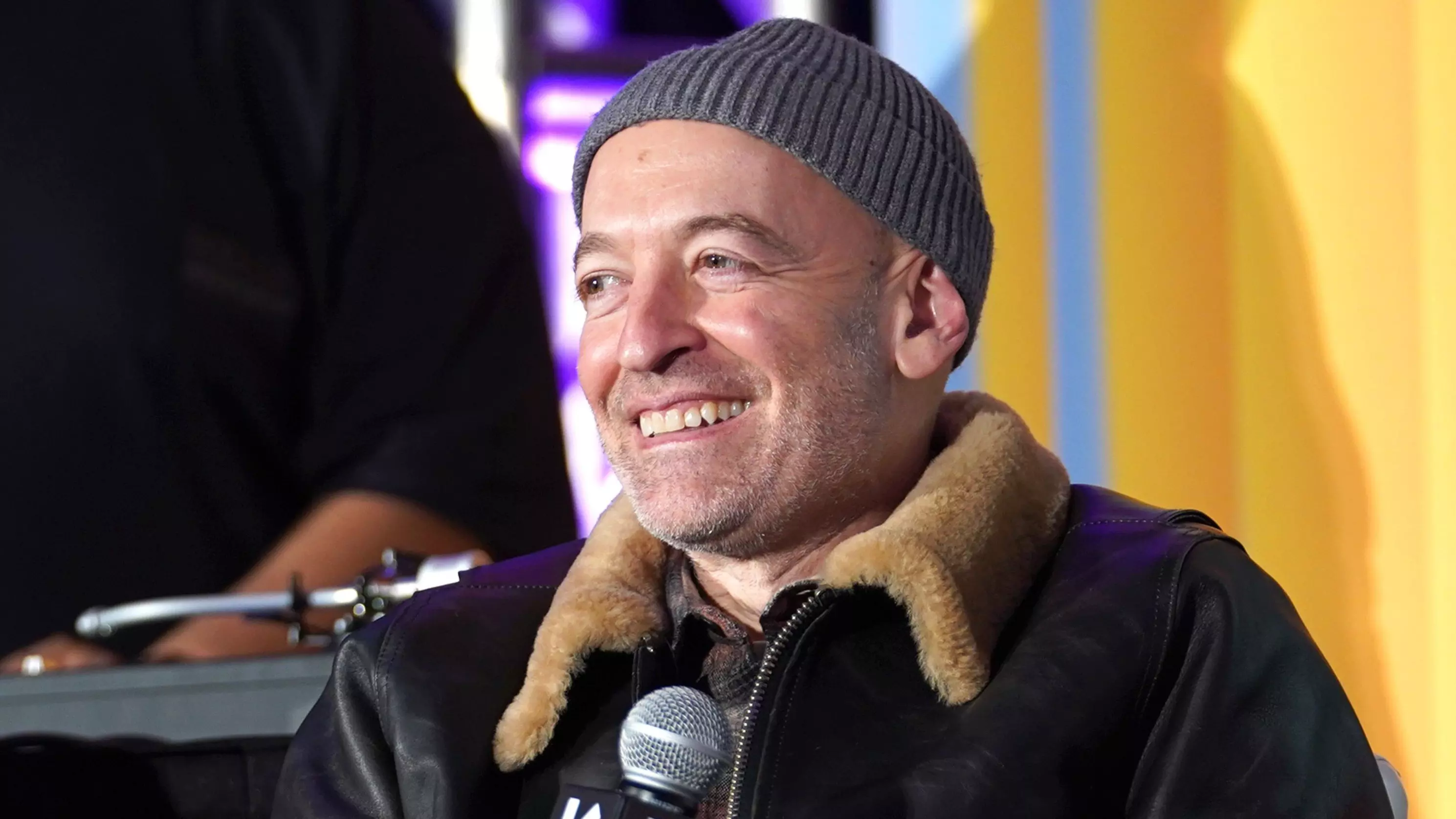
Peanut Butter Wolf Talks New Campus Christy Album & What's Next For Stones Throw

Warner Music Group's Paul Robinson To Be Honored With 2025 Entertainment Law Initiative Service Award

Your Vote, Your Voice: 6 Reasons Why Your GRAMMY Vote Matters

JOHNNYSWIM Reveal The Mic That Defines Their Sound
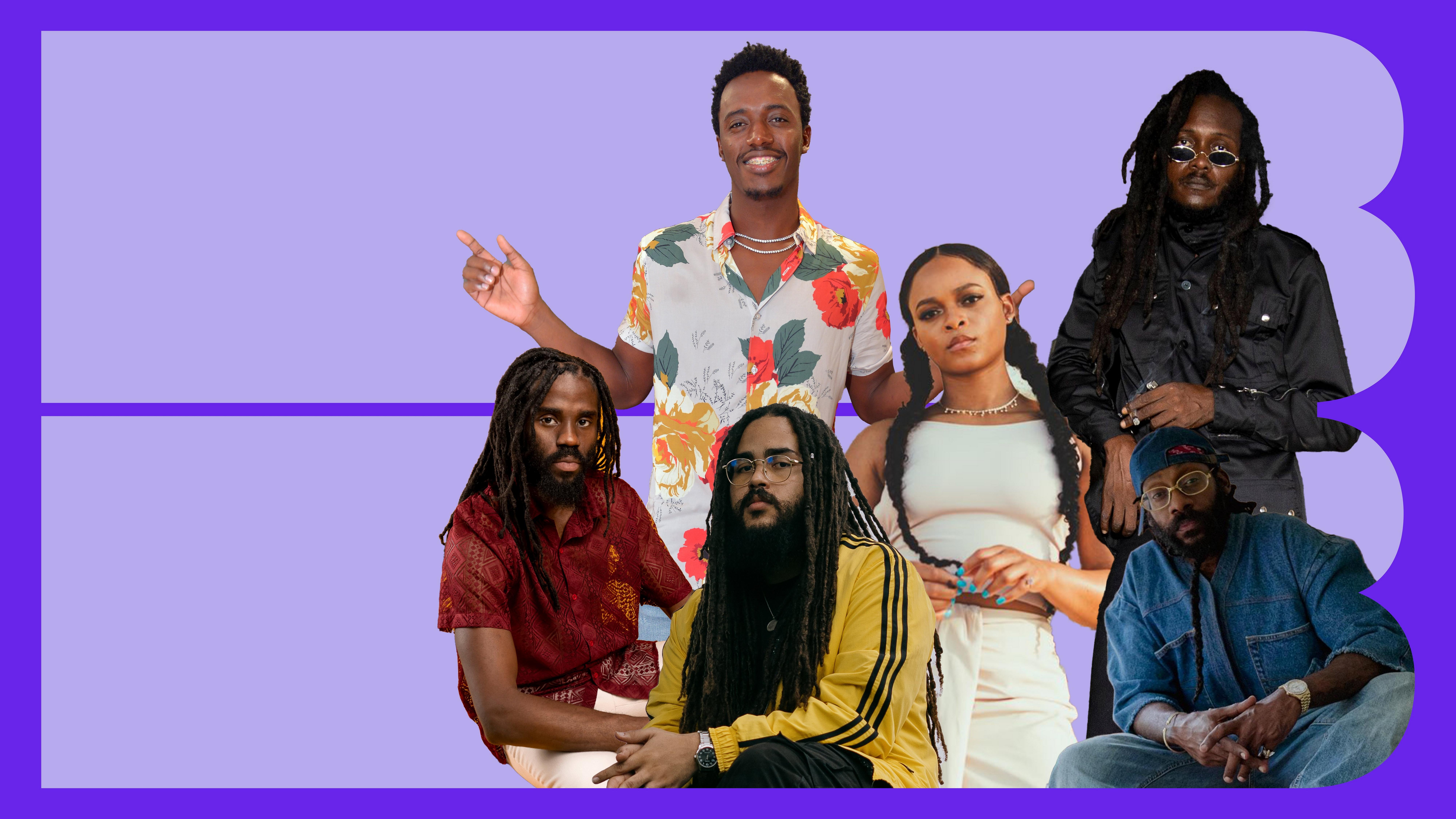
Photos: Courtesy of the artist; Johnny Louis/Getty Images; Courtesy of the artist; Yannick Reid; Horace Freeman; Courtesy of the artist
list
10 Artists Shaping Contemporary Reggae: Samory I, Lila Iké, Iotosh & Others
In honor of Caribbean American Heritage Month, meet 10 artists who are shaping the sound of contemporary reggae. From veterans who are hitting great strides, to promising newcomers, these acts showcase reggae's wide appeal.
The result of audacious experimentation by studio musicians and producers, reggae originated in Jamaica circa 1968 in Kingston, Jamaica. Along with its various subgenres of lovers rock, roots, dub and dancehall, reggae has influenced many music forms and found adoring audiences all over the world.
An authentic expression of the singers and musicians’ surroundings and experiences, reggae evolved from its 1960s forerunners, ska and rocksteady, shaped by contemporary influences such as American jazz and R&B, and mento, Jamaican folk music. Likewise, today’s reggae music makers draw from genres such as hip-hop (especially its trap strain) to create a generationally distinctive sound that still remains tethered to Jamaica's musical history.
In the 2020s, the Best Reggae Album GRAMMY winners reflect the diverse musical palette that comprises contemporary reggae. EDM influences and reggaeton (a genre built upon digitized dancehall reggae riddims) remixes dominate the 2024 winner Julian Marley and Antaeus' Colors of Royal. The award’s 2023 recipient — Kabaka Pyramid's The Kalling, produced by Damian and Stephen Marley — intertwines traditional roots reggae with Kabaka’s love of hip-hop. The late, great Toots Hibbert was posthumously awarded the 2021 GRAMMY for Time Tough, a hard rocking, R&B influenced gem that captured Toots’ soulful exuberance. In 2020 Koffee became the youngest and first female awardee in the category for Rapture, which features the most experimental soundscapes among this decade’s winners. Ironically, the most traditional approach to reggae is heard on American reggae band SOJA’s 2022 winner, Beauty in the Silence.
Read more: Lighters Up! 10 Essential Reggae Hip-Hop Fusions
In honor of Caribbean American Heritage Month, which was officially designated by a Presidential proclamation in June 2006, here are 10 Jamaican artists who are shaping contemporary reggae. Some are veterans who are currently hitting the greatest strides of their professional lives, others are newcomers at the threshold of extremely promising careers. All are committed to their craft and upholding reggae, even if their music ocassionally sounds unlike the reggae of a generation ago.
Kumar Bent (and the Original Fyah)
In the mid 2010s, Jamaican band Raging Fyah had a significant impact on the American reggae circuit, with their burnished, inspirational roots reggae brand as heard on such songs as "Nah Look Back" and "Judgement Day." They toured the U.S. with American reggae outfits including Stick Figure, Iration and Tribal Seeds, and supported Ali Campbell’s version of UB40 in the UK. Raging Fyah’s album Everlasting was nominated for a 2017 Best Reggae Album GRAMMY.
The following year, charismatic lead singer and principal songwriter Kumar Bent (along with guitarist Courtland "Gizmo" White, who passed away in 2023) left due to differences with their bandmates.
In 2023 Kumar teamed up with Raging Fyah alumni, drummer Anthony Watson, keyboardist Demar Gayle and backing vocalist/engineer Mahlon Moving to create The Original Fyah. In February they performed at the band’s annual Wickie Wackie festival in Jamaica and they’ve recorded an album due for upcoming release (Demar has since moved on to other projects.)
Kumar, 35, a classically trained pianist, has recorded two solo albums, including Tales of Reality with Swiss studio band 18th Parallel; they’ll tour Europe together in October. Kumar’s acoustic guitar sets have opened several dates for stalwart Jamaican band Third World this year.
Each of his musical endeavors are focused on bolstering Jamaica’s signature rhythm.
"Reggae from the 1970s and ‘80s was special because Jamaican artists made the songs exactly how they felt, and found an audience with the sounds they created," Kumar tells GRAMMY.com. "If we (Jamaicans) keep making R&B, hip-hop sounding music, we are giving away what we have for something else that we are not as good at."
Lila Iké
Lila Iké's multifarious influences run deep. "I am a Jamaican artist who is influenced by different music and you’re going to hear that coming through," she said in a June 2020 interview with The Daily Beast, following the release of her debut EP The ExPerience.
While Jamaican music expanded beyond what Iké called "the purist reggae vibe," she told The Daily Beast that "it’s important to maintain the music’s indigenousness. I incorporate that into the rhythms I use and my singing style because I want young people to know, this music doesn’t start where you hear it, it has transcended many years and changes."
Born Alecia Grey, she chose the name Lila, which means blooming flower, and Iké, a Yoruba word meaning the Power of God. Her vocals are a singular, mesmerizing blend of smoky, soulful expressions with a laid back yet poignant rendering. Lila’s effortless versatility is rooted in her upbringing in the rural community of Christiana. Her mother listened to a wide range of music, R&B, jazz, soul, country and reggae, with Lila, her mom and sisters singing along to all of it.
Lila moved to Kingston to pursue her musical ambitions; she performed on open mic nights and posted her songs on social media. Protoje reached out to her via Twitter with an invitation to record. From that initial meeting, Protoje has managed and mentored her career. Through his label In.Digg,Nation Collective’s deal with RCA Records, Lila will release her debut album later this year; Protoje also produced the album’s first single, the reggae/R&B slow jam duet "He Loves Us Both" featuring H.E.R.
Hezron
A passionate singer whose vocals marry the grit of Otis Redding with the cool of Marvin Gaye, singer/songwriter and musician Hezron has yet to achieve the widespread impact his talents merit, although he's been planting seeds since 2010. That year, his single "So In Love" was the first of Hezron's substantial musical fruits and exceptional catalog.
On his 2022 self-produced, remarkable album Man on a Mission, Hezron explores a range of Jamaican music and history. On the rousing ska track "Plant A Seed," Hezron's guttural, gospel inflected delivery is reminiscent of Toots Hibbert as he warns his critics, "You think you bury me and done but you only planted a seed." The album also features a scorching R&B jam "Tik Tok I’m Coming"; an acoustic, mystical acknowledgement of Rastafari, "Walk In Love and Light"; and a stirring plea to "Save The Children." The album’s title track is a spirited reggae anthem offering support to anyone in pursuit of their goals while underscoring Hezron’s own purpose.
"Man on a Mission is about my personal journey, the obstacles I’ve had to overcome in the music business and beyond. I’m telling myself, telling the world, this man is on a mission to restore Jamaican music to a prominent place internationally," Hezron tells GRAMMY.com.
In November 2023 Hezron embarked on a global mission: a two-month tour of Ghana, followed, this year, by summer shows in Canada and the U.S. before returning to Africa, with dates in Ivory Coast, Kenya, and South Africa.
Iotosh
A self-taught multi-instrumentalist, songwriter and vocalist, Iotosh (born Iotosh Poyser) made his name as a producer who can seamlessly blend disparate influences into progressive reggae soundscapes. He’s produced singles for several marquee acts who emerged from Jamaica’s reggae revival movement of the previous decade including Koffee’s "West Indies," the title track on Jah9’s Note to Self featuring Chronixx, and Jesse Royal’s "Rich Forever", featuring Vybz Kartel. He also produced five of the 10 tracks on Protoje’s GRAMMY-nominated album Third Time’s The Charm.
Iotosh’s parents (Canadian music TV journalist Michele Geister and Jamaican singer/songwriter/producer Ragnam Poyser) came from different musical worlds, so he heard a multiplicity of genres growing up, including hip-hop, rock, funk, soul, reggae and R&B. Iotosh wanted to replicate all of those sounds when he started making music, which led to his genre blurring approach.
As an artist, his 2023 breakout single the meditative "Fill My Cup" (featuring Protoje on the remix) was followed this year by "Bad News," which explores grief that follows losing a loved one, both on one-drop reggae rhythms. He describes his debut eight-track EP, due in September, as "a mix of traditional reggae and elements of contemporary music, pop, hip-hop and R&B."
"In my productions, I try to have some identifiable Jamaican aspects, usually the bassline, which I play live," Iotosh tells GRAMMY.com. "Reggae is based on a universal message, it’s peace and love but contextually it comes from a place of enlightening people about forces of oppression. If that message is in the music, it’s still reggae, no matter what it sounds like."
Iotosh will make his New York City debut on July 7 at Federation Sound’s 25th Anniversary show, Coney Island Amphitheater.
Mortimer
Producer Winta James first heard Mortimer while working on sing-jay Protoje’s acclaimed 2015 album Ancient Future, and decided he was the right singer to provide the evocative hook on the opening track, "Protection." About a year after they recorded the song, Mortimer became the first artist Winta signed to his company Overstand Entertainment.
In 2019 Mortimer (born Mortimer McPherson) released his impressive EP, Fight the Fight; single "Lightning," was especially noteworthy for its roots-meets-lovers rock sound anchored in a heavy bass and delicately embellished with a steel guitar. Mortimer’s sublime high register vocals express a refreshingly vulnerable perspective: "Girl, my love grows stronger each day, baby please don't hurt me just because you know I'll forgive."
"The songs that get me the most are coming from a place deep within," Mortimer told me in a January 2020 interview. "I started out writing what I thought was expected of me as a Rasta, militant, social commentaries, but it was missing something. Before I am a Rastaman, I am a human being, so I dig deep, expressing my feelings simply, truthfully."
Mortimer’s debut album is due in September and his latest single, "Not A Day Goes By," addresses his struggles with depression: "I’ve given up 1000 times, I’ve even tried to take my own life," he sings in a haunting tone. Mental health struggles remain a taboo topic in reggae and popular music overall; Mortimer’s raw, confessional lyrics demonstrate his courageousness as an artist, and that bravery will hopefully inspire others going through similar struggles to speak out and get the help they need.
Hector "Roots" Lewis
Earlier this year, Hector "Roots" Lewis made his acting debut in the biopic Bob Marley: One Love, earning enthusiastic reviews for his portrayal of the late Carlton "Carly" Barrett, the longstanding, influential drummer with Bob Marley and The Wailers. Formerly the percussionist and backing vocalist with Chronixx’s band Zinc Fence Redemption, Hector is blazing his own trail as a vocalist, songwriter and musician.
The son of the late Jamaican lover’s rock and gospel singer Barbara Jones, Hector’s profound love for music began as a child. In 2021, Chronixx launched his Soul Circle Music label with Hector’s single "Ups and Downs," an energetic funky romp that’s a testament to music’s healing powers. The song’s lyric "never disrespect cuz mama set a foundation" directly references Hector’s mother as the primary motivating force for his musical pursuits.
In 2022 Hector toured the U.S. as the lead singer with California reggae band Tribal Seeds (when lead singer Steven Jacobo took a hiatus) taking his dynamic instrumental and vocal abilities to a wider audience. The same year, Hector released his five-track debut EP, D’Rootsman, which includes regal, soulful reggae ("King Said"), 1990s dancehall flavor ("Nuh Betta Than Yard") and R&B accented jams "Good Connection."
Co-produced with Johnny Cosmic, Hector’s latest single "Possibility" boasts an irresistible bass heavy reggae groove. On his Instagram page, Hector dedicates "Possibility" to people who are facing the terrors of "warfare, colonialism, depression and oppression," urging them to "believe in the "Possibility" that they can be free from that suffering."
Read more: 7 Things We Learned Watching 'Bob Marley: One Love'
Hempress Sativa
The daughter of Albert "Ilawi Malawi" Johnson, musician and legendary selector with Jah Love sound system, Hempress Sativa was raised in a Rastafarian household where music played an essential role in their lives. Performing since her early teens, she developed an impressive lyrical prowess and an exceptional vocal flow, effortlessly switching between singing and deejaying.
Consistently bringing a positive Rasta woman vibration to each track she touches, Hempress Sativa’s most recent album Chakra is a sophisticated mix of reggae rhythms, Afrobeats ("Take Me Home," featuring Kelissa), neo-soul ("The Best") and cavernous echo and reverb dub effects ("Sound the Trumpet"), a call to action for spiritual warriors. On "Top Rank Queens" Hempress Sativa trades verses with veterans Sister Nancy and Sister Carol, each celebrating their deeply held values and formidable mic skills as Rastafari female deejays.
Hempress Sativa is featured in the documentary Bam Bam The Sister Nancy Story, (which premiered at the Tribeca Festival on June 7) recounting the legendary toaster’s influence on her own artistry. Speaking specifically about Sister Carol, Hempress tells GRAMMY.com, "She is my mentor and to see her, as a Rastafari woman from back in the 1970s, maintain her standards and principles, gives me the confidence moving forward that I, too, can find a space within this industry where I can wholeheartedly be myself."
Learn more: The Women Essential To Reggae And Dancehall
Tarrus Riley
One of the most popular reggae songs of the 2000s was Tarrus Riley’s dulcet lover’s rock tribute to women "She’s Royal." Released in 2006 and included on his acclaimed album Parables, "She’s Royal" catapulted Tarrus to reggae stardom; the song’s video has surpassed 114 million YouTube views.
Tarrus has maintained a steady output of hit singles, while his live performances with the Blak Soil Band, led by saxophonist Dean Fraser, have established a gold standard for live reggae in this generation. Tarrus’s expressive, dynamic tenor is adaptable to numerous styles, from the stunning soft rocker "Jah Will", to the thunderous percussion driven celebration of African identity, "Shaka Zulu Pickney" and the EDM power ballad "Powerful," a U.S. certified gold single produced by Major Lazer, featuring Ellie Goulding.
His 2014 album Love Situation offered a gorgeous tribute to Jamaica’s rocksteady era (during which time his father, the late Jimmy Riley, started out as a singer in the harmony group the Sensations). Tarrus’s most recent album 2020’s Healing, includes meditative reggae ("Family Tree"), trap dancehall with Teejay referencing racial and political sparring on "Babylon Warfare," and the pop dancehall flavored hit "Lighter" featuring Shenseea (the song’s video has surpassed 102 million views).
Healing’s title track ponders what the new normal will be like, "without a simple hug, so tight and warm and snug/what will this new life be like, without a simple kiss, Jah knows I'd hate to miss."
Recorded and released at the height of the pandemic, Healing is deserving much greater recognition for its luminous production (by Tarrus, Dean Fraser and Shane Brown) brilliant musicianship, nuanced songwriting and forthright expression of the myriad, conflicting emotions many underwent during the lockdowns.
Samory I
Samory I is among the most compelling Jamaican voices of this generation, whose mesmeric tone is both a guttural cry and a clarion call to collective mobilization. Born Samory Tour Frazer (after Samory Touré, who resisted French colonial rule in 19th century west Africa), Samory I released his critically acclaimed debut album, Black Gold, in 2017.
His latest release Strength is produced by Winta James, and was the only reggae title included on Rolling Stone’s Best 100 albums of 2023. The modern roots reggae masterpiece features the affirming "Crown," on which Samory commands, "I stand my ground, I will not crumble/I keep my crown here in this jungle." Mortimer is featured on "History of Violence," which details the generational trauma that plagues ghetto residents over a classic soul-reggae riddim. "Blood in the Streets" is a blistering roots reggae anthem, an anguished exploration of the conditions that have led to the violence: "Shame to say the system that should be protecting Is still the reason we suffer/The perpetrators blame the victims, do they even listen? Can they hear us from the gutter?"
Despite the societal and personal suffering that’s conveyed ("My Son" bemoans the death of Samory’s firstborn), Samory I offers "Jah Love" urging the wronged and the wrongdoers to ‘Show no hate, hold no grudge, seek Jah love," It’s an inspirational conclusion to Strength, rooted in Rastafari’s deeply meshed mysticism and militancy.
Romain Virgo
There’s a scene in the video for Romain Virgo’s 2024 hit "Been there Before" where he sits alone in an empty room cradling a gold object with three shooting stars; those familiar Romain’s career beginnings will recognize it as the trophy the then 17-year-old won in the Jamaica’s talent contest Digicel Rising Stars, in 2007. "Been There Before" is a compelling sketch of Romain’s life’s struggles, yearning for something better, as set to a throbbing bassline: "To be someone was my heart’s desire/so me never stop send up prayer," he sings in a melancholy, quavering tone.
Growing up poor in St. Ann, Jamaica, the trophy represents the contest victory that changed Romain’s life. One of the Rising Star prizes was a recording contract with Greensleeves/VP Records. On March 1, Romain released his fourth album for VP The Gentleman, one of 2024’s finest reggae releases, evidencing Romain’s increasing sophistication as a writer and nuanced vocalist.
Throughout his career Romain has vacillated between romantic lover’s rock stylings ("Stars Across The Sky"), reggae covers of pop hits (Sam Smith’s "Stay With Me") that are so good, you’ll likely forget the originals, and organic, tightly knitted collabs including the aforementioned "Been There Before" featuring Masicka, all of which has created Romain’s large, loyal fan base and a hectic international performance schedule.
Yet, Romain’s greatest success might be maintaining the wholesome, humble personality that captivated Jamaican audiences when he won Rising Stars 17 years ago. "People have seen me grow in front of their eyes," Romain tells GRAMMY.com. "I enjoy singing positive music, knowing my songs won’t negatively impact kids. Being a husband and father now comes with much more responsibility in holding on to those values, it feels like a transition from a gentle boy into a gentleman."
Remembering Coxsone Dodd: 10 Essential Productions From The Architect Of Jamaican Music
PRIDE & Black Music Month: Celebrating LGBTQIA+ & Black Voices
Listen To GRAMMY.com's 2024 Pride Month Playlist Of Rising LGBTQIA+ Artists
9 New Pride Anthems For 2024: Sabrina Carpenter's "Espresso," Chappell Roan's "Casual" & More
What's The Future For Black Artists In Country Music? Breland, Reyna Roberts & More Sound Off
Why Beyoncé Is One Of The Most Influential Women In Music History | Run The World
9 Ways To Support Black Musicians & Creators Year-Round
How Beyoncé Is Honoring Black Music History With 'Cowboy Carter,' "Texas Hold Em," 'Renaissance' & More
The Evolution Of The Queer Anthem: From Judy Garland To Lady Gaga & Lil Nas X
15 LGBTQIA+ Artists Performing At 2024 Summer Festivals
50 Artists Who Changed Rap: Jay-Z, The Notorious B.I.G., Dr. Dre, Nicki Minaj, Kendrick Lamar, Eminem & More
Fight The Power: 11 Powerful Protest Songs Advocating For Racial Justice

How Rihanna Uses Her Superstardom To Champion Diversity | Black Sounds Beautiful

How Beyoncé Has Empowered The Black Community Across Her Music And Art | Black Sounds Beautiful
5 Women Essential To Rap: Cardi B, Lil' Kim, MC Lyte, Sylvia Robinson & Tierra Whack
Celebrate 40 Years Of Def Jam With 15 Albums That Show Its Influence & Legacy

Watch Frank Ocean Win Best Urban Contemporary Album At The 2013 GRAMMYs | GRAMMY Rewind
A Brief History Of Black Country Music: 11 Important Tracks From DeFord Bailey, Kane Brown & More
10 Women In African Hip-Hop You Should Know: SGaWD, Nadai Nakai, Sho Madjozi & More
10 Artists Shaping Contemporary Reggae: Samory I, Lila Iké, Iotosh & Others
The Rise Of The Queer Pop Star In The 2010s
How Sam Smith's 'In The Lonely Hour' Became An LGBTQIA+ Trailblazer
How Queer Country Artists Are Creating Space For Inclusive Stories In The Genre

How Jay-Z Became The Blueprint For Hip-Hop Success | Black Sounds Beautiful

How Kendrick Lamar Became A Rap Icon | Black Sounds Beautiful
Dyana Williams On Why Black Music Month Is Not Just A Celebration, But A Call For Respect
6 LGBTQIA+ Latinx Artists You Need To Know: María Becerra, Blue Rojo & More
7 LGBTQ+ Connections In The Beatles' Story
Breaking Down Normani's Journey To 'Dopamine': How Her Debut Album Showcases Resilience & Star Power
10 Alté Artists To Know: Odunsi (The Engine), TeeZee, Lady Donli & More

Celebrating Black Fashion At The GRAMMYs Throughout The Decades | Black Music Month
FLETCHER Is "F—ing Unhinged" & Proud Of It On 'In Search Of The Antidote'
For Laura Jane Grace, Record Cycles Can Be A 'Hole In My Head' — And She's OK With That
15 Essential Afrorock Songs: From The Funkees To Mdou Moctar
50 Years In, "The Wiz" Remains An Inspiration: How A New Recording Repaves The Yellow Brick Road
Why Macklemore & Ryan Lewis' "Same Love" Was One Of The 2010s' Most Important LGBTQ+ Anthems — And How It's Still Impactful 10 Years On
Songbook: The Complete Guide To The Albums, Visuals & Performances That Made Beyoncé A Cultural Force

Why Cardi B Is A Beacon Of Black Excellence | Black Sounds Beautiful
Queer Christian Artists Keep The Faith: How LGBTQ+ Musicians Are Redefining Praise Music
9 Revolutionary Rap Albums To Know: From Kendrick Lamar, Black Star, EarthGang & More
9 "RuPaul's Drag Race" Queens With Musical Second Acts: From Shea Couleé To Trixie Mattel & Willam
5 Black Artists Rewriting Country Music: Mickey Guyton, Kane Brown, Jimmie Allen, Brittney Spencer & Willie Jones
How 1994 Changed The Game For Hip-Hop

How Whitney Houston’s Groundbreaking Legacy Has Endured | Black Sounds Beautiful
LGBTQIA+-Owned Venues To Support Now

Celebrate The Genius Of Prince | Black Sounds Beautiful

Explore The Colorful, Inclusive World Of Sylvester's 'Step II' | For The Record
Black-Owned Music Venues To Support Now
5 Artists Fighting For Social Justice Today: Megan Thee Stallion, Noname, H.E.R., Jay-Z & Alicia Keys
Artists Who Define Afrofuturism In Music: Sun Ra, Flying Lotus, Janelle Monae, Shabaka Hutchings & More
5 Trans & Nonbinary Artists Reshaping Electronic Music: RUI HO, Kìzis, Octo Octa, Tygapaw & Ariel Zetina
From 'Shaft' To 'Waiting To Exhale': 5 Essential Black Film Soundtracks & Their Impact
5 Emerging Artists Pushing Electronic Music Forward: Moore Kismet, TSHA, Doechii & Others
5 Artists Essential to Contemporary Soca: Machel Montano, Patrice Roberts, Voice, Skinny Fabulous, Kes The Band

How Quincy Jones' Record-Setting, Multi-Faceted Career Shaped Black Music On A Global Scale | Black Sounds Beautiful
5 Black Composers Who Transformed Classical Music
Brooke Eden On Advancing LGBTQ+ Visibility In Country Music & Why She's "Got No Choice" But To Be Herself
Let Me Play The Answers: 8 Jazz Artists Honoring Black Geniuses
Women And Gender-Expansive Jazz Musicians Face Constant Indignities. This Mentorship Organization Is Tackling The Problem From All Angles.

Histories: From The Yard To The GRAMMYs, How HBCUs Have Impacted Music
How HBCU Marching Band Aristocrat Of Bands Made History At The 2023 GRAMMYs
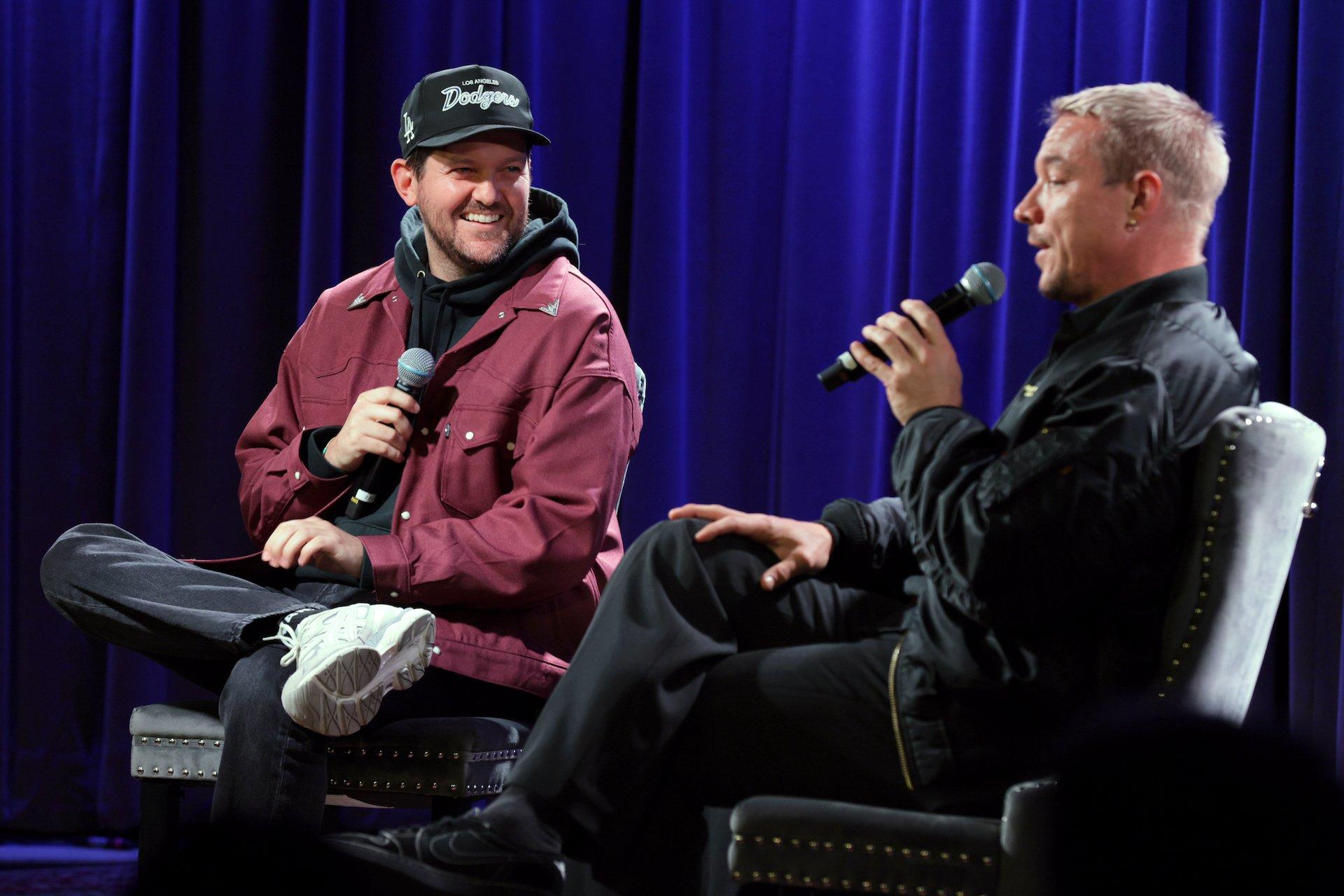
Photo: Courtesy of the Recording Academy™️/photo by Rebecca Sapp, Getty Images
list
Dillon Francis & Diplo In Conversation: 5 Things We Learned From The GRAMMY Museum Event
In honor of Dillon Francis' breakthrough hit "Get Low" turning 10 this year, the DJ/producer sat down with one of his longtime dance buds, Diplo, at the GRAMMY Museum. Check out five revelations from the career-spanning (and highly entertaining) chat.
Dillon Francis and Diplo have respectively built massive careers within dance music — but as they proved on May 15, they may have been just as successful doing stand-up comedy.
The two producers came together at the GRAMMY Museum's Clive Davis Theater for a wisecracking exchange, marking the 10-year anniversary of Francis' breakthrough song with DJ Snake, the platinum-certified "Get Low." It also felt like a celebration of
their longstanding friendship — which predates "Get Low" — as the conversation was filled with humorous anecdotes, insider stories about key moments in Francis' career, and some of Francis' favorite memories with Diplo.
Since "Get Low," Francis has had a mercurial music trajectory. Though he's released three studio albums and a number of EPs, his landmark mixtapes — 2015's This Mixtape Is Fire and last year's This Mixtape is Fire TOO — are the key highlights. Like many dance acts, collaboration has been at the core of Francis' work, particularly within the electronic community; he's teamed up with the likes of Skrillex, Calvin Harris, Martin Garrix, Kygo, Alison Wonderland, Illenium, Alesso, and even Diplo's trio Major Lazer.
More recently, Francis has released collaborations with Ship Wrek, Space Rangers and Sophie Powers, and the moombahton Pero Like EP with Good Times Ahead. The EP includes the bouncy "LA On Acid," whose video — which premiered at the South By Southwest Festival in March — features Diplo in its opening sequencing, along with cameos from Euphoria's Chloe Cherry, Righteous Gemstones' Tony Cavalero and Master of None's Eric Wareheim.
Three days after stopping by the GRAMMY Museum, Francis headed out to Las Vegas to perform at North America's largest electronic dance music festival, Electric Daisy Carnival, on May 18. It was one of many festival appearances for Francis this summer, along with one of several trips to Las Vegas, as he has a residency at the Wynn's XS Nightclub.
Below, take a look at five takeaways from Francis' spirited conversation with Diplo at the GRAMMY Museum.
Francis Met Diplo By Sliding Into His Twitter DMs
The two met in person 16 years ago in Francis' hometown of Los Angeles. Before that, Francis would send Diplo demos for consideration for the latter's record label, Mad Decent. Once Francis realized Diplo had heard his song "Masta Blasta," he slid into Diplo's Twitter DMs — and never left. "I was harassing him so much," Francis quipped. "'Let's please hang out right now. God, please let me come and hang out.'"
Diplo invited him to a bar, and they watched the Phillies (Diplo's team) lose. "It was one of my first blind dates," Diplo said. "I tried to make [Dillon] my ghost producer."
Shortly after their first meeting, the pair worked together on a dubstep remix for Kelly Rowland's "Motivation" — and the more exposure he had to Francis' production skills, the more convinced Diplo was of his talent. "[Dillon is] too good to be my ghost producer. He's already better than me. We got to do a real record with this guy."
Francis' Superior Social Media Skills Began As A Class Assignment In High School
Francis' comedic online presence is the perfect combination of humor and authenticity, adding another layer to his appeal alongside his music. He traced his savvy skills back to his time at Los Angeles County High School for the Arts and a new genres course he took. His teacher considered everything as art, and their creations could be whatever they wanted.
"My friend and I would make comedy videos, basic sketch shows, and we passed the class with flying colors," Francis recalled. "When Vine came around, I did what I did in that class. It was another way of doing stuff I love to do, which is making people laugh."
Diplo then chimed in with a hilariously fitting observation. "You are the Weird Al Yankovic of electronic music," he said. "You had bangers, but you made them funny and you made them accessible to people."
He also commended Francis for opening his eyes to what social media can do for a creator. "You put me onto interaction on social media in different ways," Diplo added. "I don't think any other electronic music DJs were putting their personality out there like you did. You were the first one to do that properly."
Francis' Musical Education Came From Collaboration
As Francis revealed, he dropped out of college after a semester. But as someone who has built his career on collaboration, he's learned everything he needs to know by working with other artists. In fact, he thinks of working with other producers as interning.
"It's my favorite thing to do," he said. "They're going to learn the way that you produce, you're going learn the way they produce. You can cross-pollinate your ideas and come away with new ways to make music. I feel like it also helps with evolving as an artist."
Diplo agreed, noting that Francis' time as a young producer, interning at studios, learning from producers and gaining relationships in the process was essential to his career. "Not to encourage more people to drop out of college," he joked.
Furious 7 Was A Key Player In The Success Of "Get Low"
Diplo pointed out that "Get Low" had its crossover moment after being included in the soundtrack for Furious 7, the 2015 installment of the Fast and Furious franchise. He asserted that it is special for a producer to have a song in a big movie, as he experienced with M.I.A.'s "Paper Planes" (which he co-wrote and co-produced) after it was featured in 2008's Pineapple Express.
As Francis recalled, "Get Low" was already well-received and being played by the DJ community, with about five million plays on Spotify before Furious 7. But once it was part of Furious 7 — first in the trailer and then in the film — it ramped up significantly (and now has more than 200 million Spotify streams as of press time).
"This is when people were buying music on iTunes," Francis remembers. "From the trailer, it peaked at number 5 or something like that, which is huge for any artist in dance music. We're not usually on that chart. To be right next to Selena Gomez with a song that says, 'Get low when the whistle goes,' is crazy."
He Had A Life-Altering Turning Point At 18
After Diplo concluded his questions, Francis took a few from the audience. In response to one fan about what he would have done differently early in his career, Francis opened up about one of the worst moments in his life — which actually turned into a great learning experience.
As he explained, at the age of 18, Francis was charged with a DUI (which was eventually downgraded to wet reckless). His parents spent their savings on a lawyer; he lost his car; he lost his license for a year; he did the DUI classes. And all of it put things into perspective.
"That was the first moment where I realized, things can get messed up and lost," he said. "I was like, 'I need to figure out my career. I'm going to go make money and I'm going to pay [my parents] back.' That was a very big driving factor for me."
Now 36, Francis views the incident as one of the best things to ever happen to him — and, in turn, for his path in dance music. "If that didn't happen, I don't think I would be sitting here on the stage today."
8 Essential Latin Electronic Releases: Songs And Albums From Bizarrap, Arca & More
